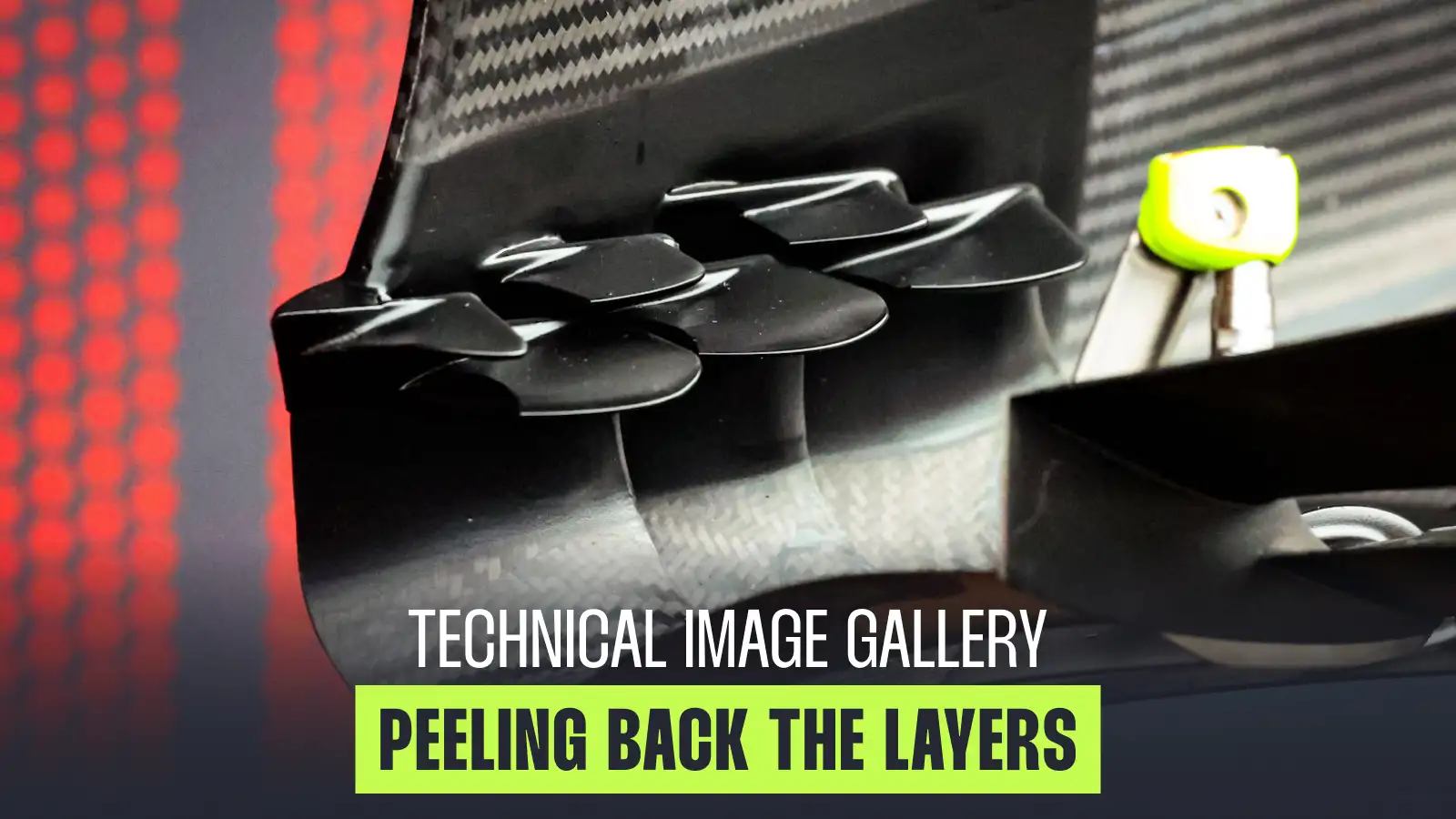Another look at some of the more intricate design details on show in the first half of the season, as we comb through some of the best technical images available.
From front wings, to diffusers and everything in between, Formula One teams are always looking for an edge over their competitors, which results in some very interesting design choices for us to observe.
No detail too small
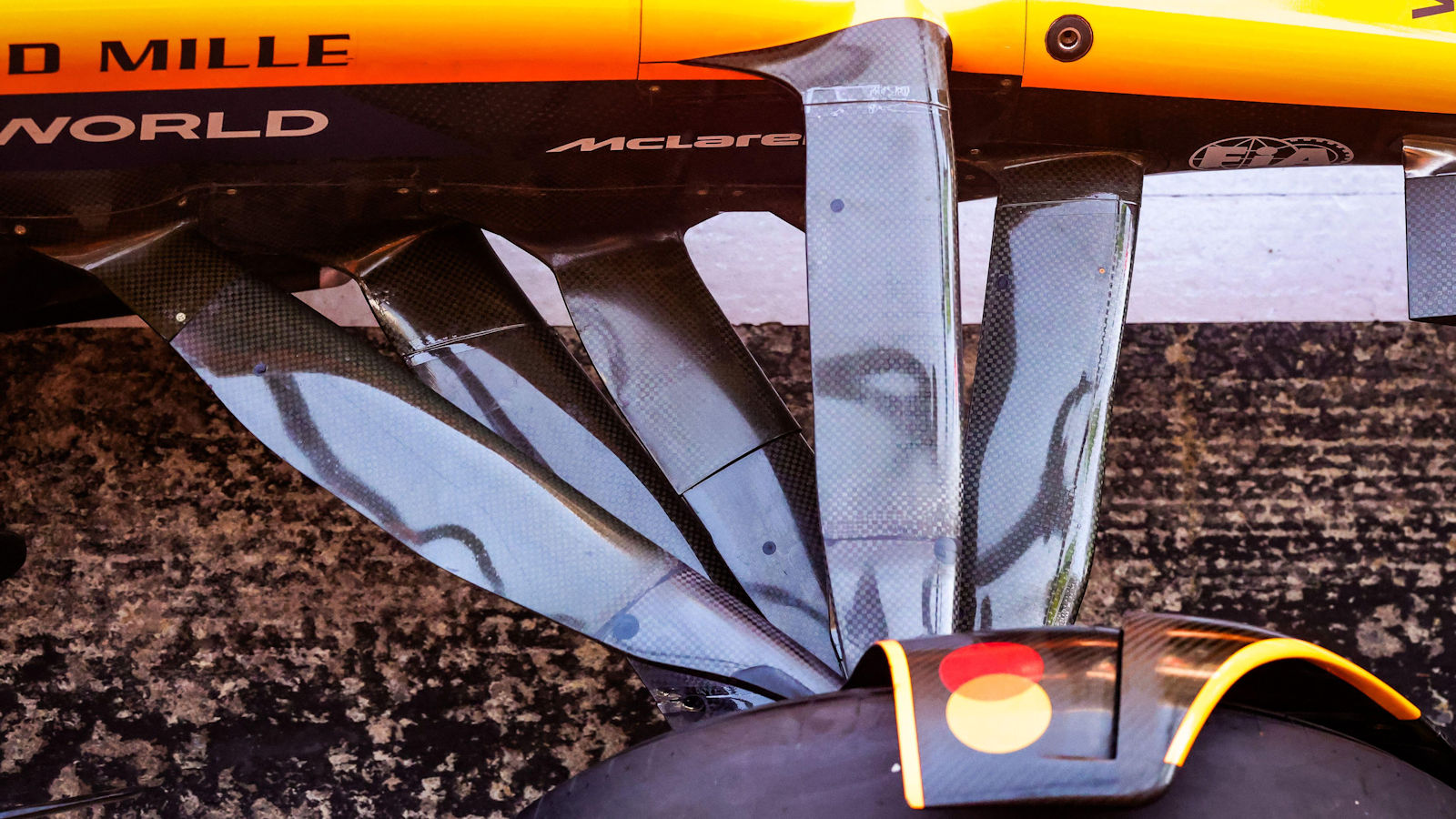
Top down overview of the front suspension and steering arm fairings on the McLaren MCL39 shows the various geometries employed for aerodynamic purposes.
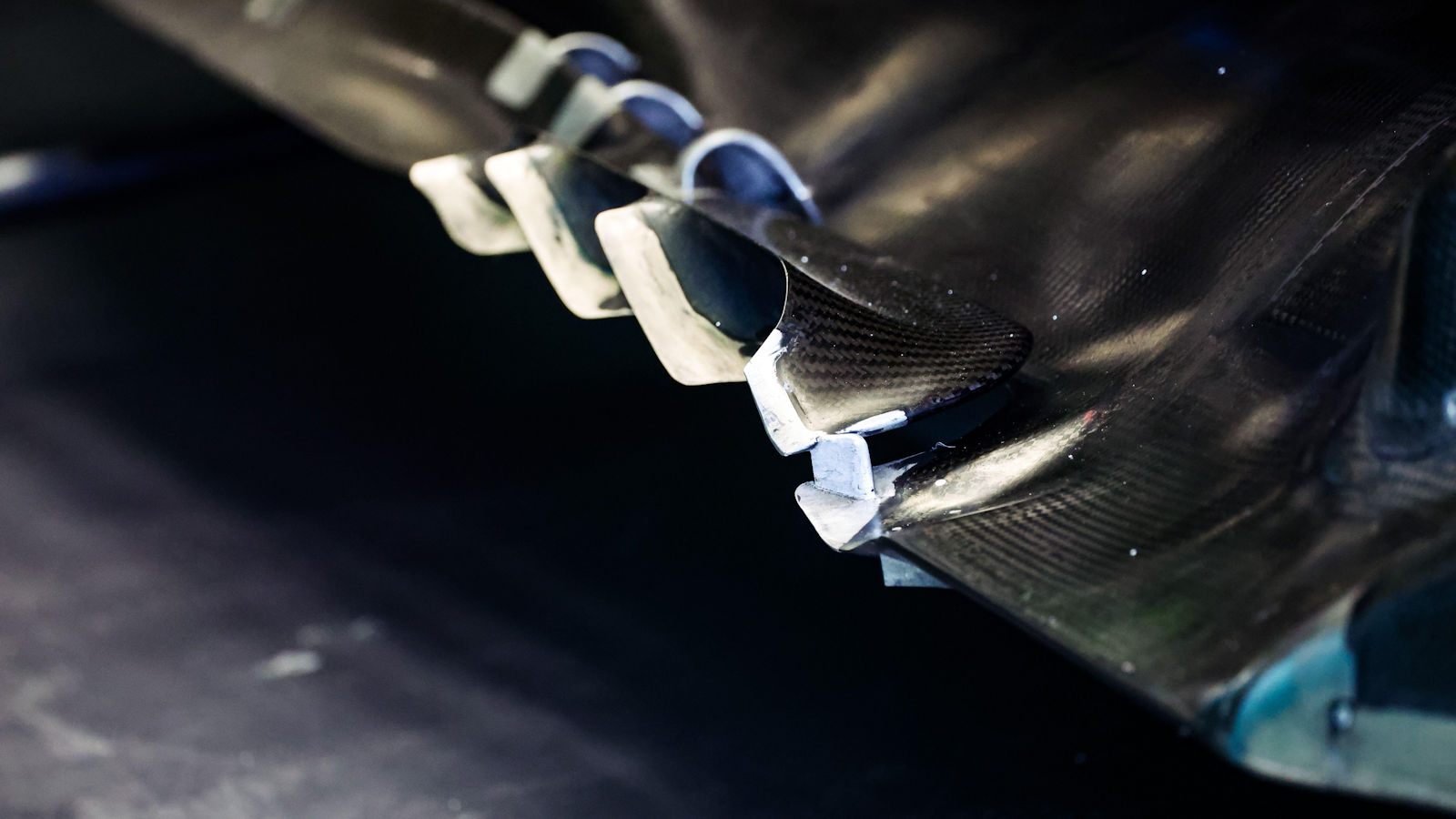
The forward, upswept section of the edge wing on the Aston Martin AMR25, which features a number of vanes to help control the airflow’s displacement as it exits from under the floor.
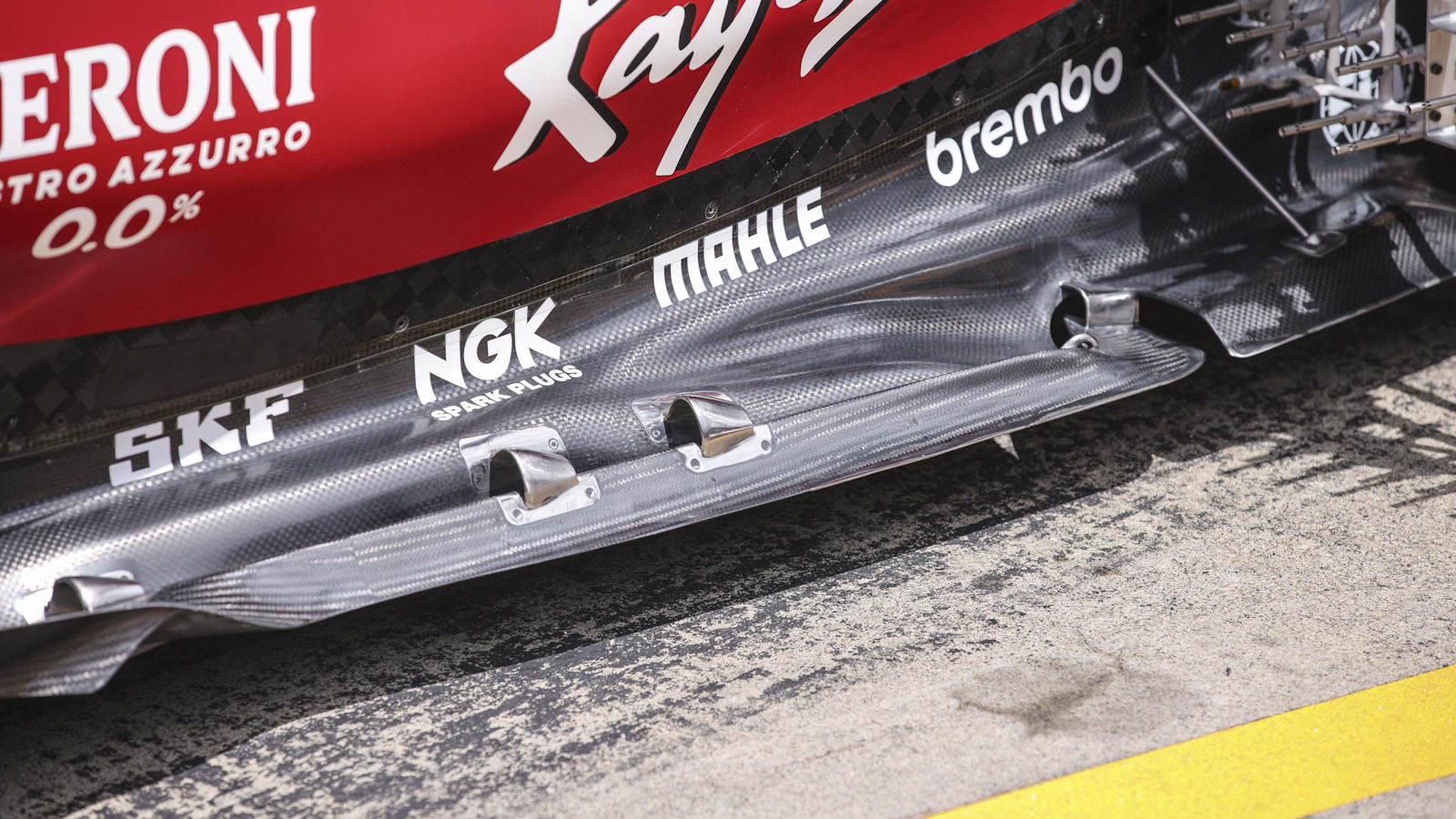
The edge wing on the Ferrari SF-25, which features an L-Shaped rear section that works its way under the floor.
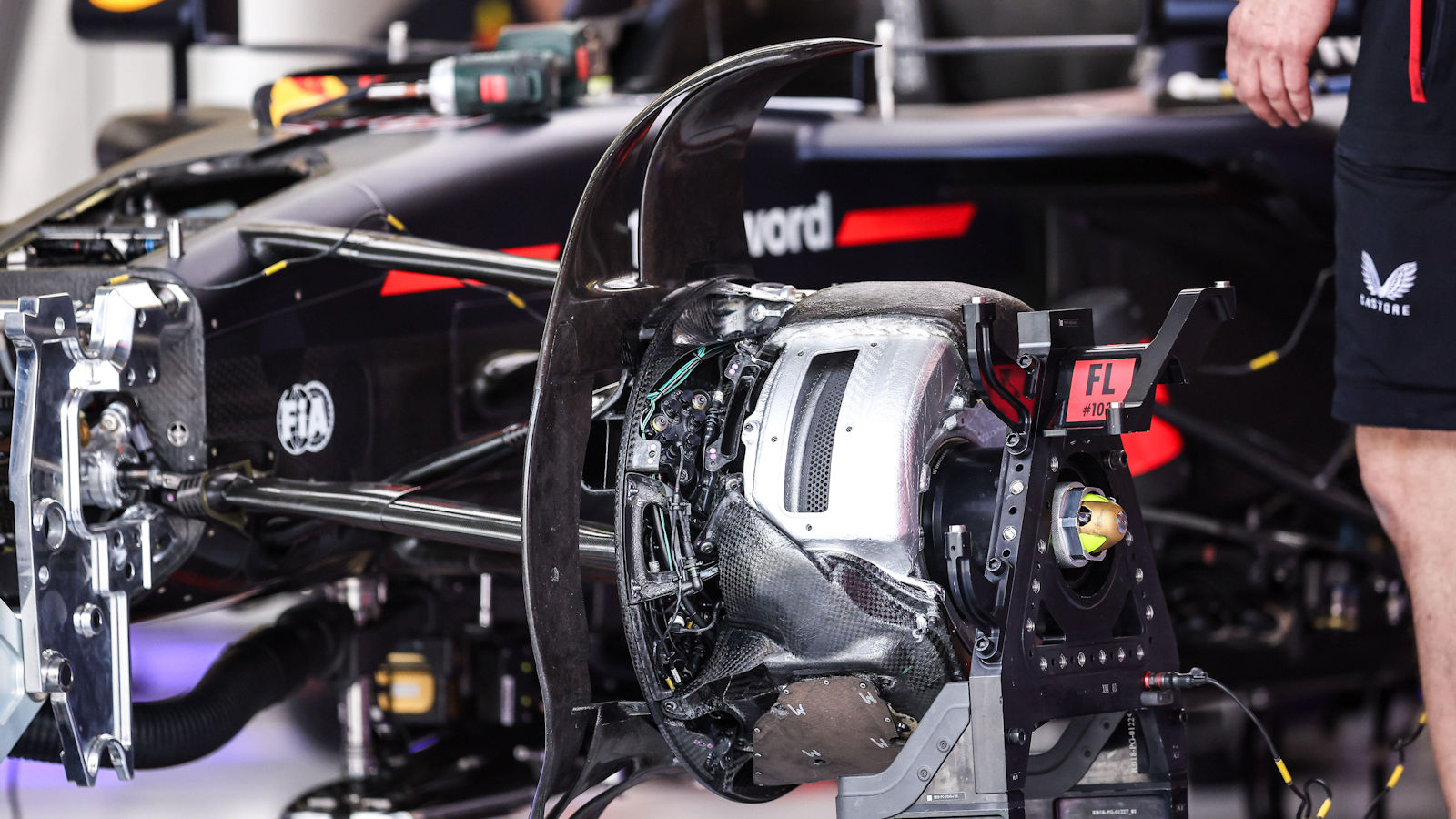

A peek beneath the front brake drum covers on the Red Bull RB21 reveals the ducting and fairings used to direct cool air to the various brake components.
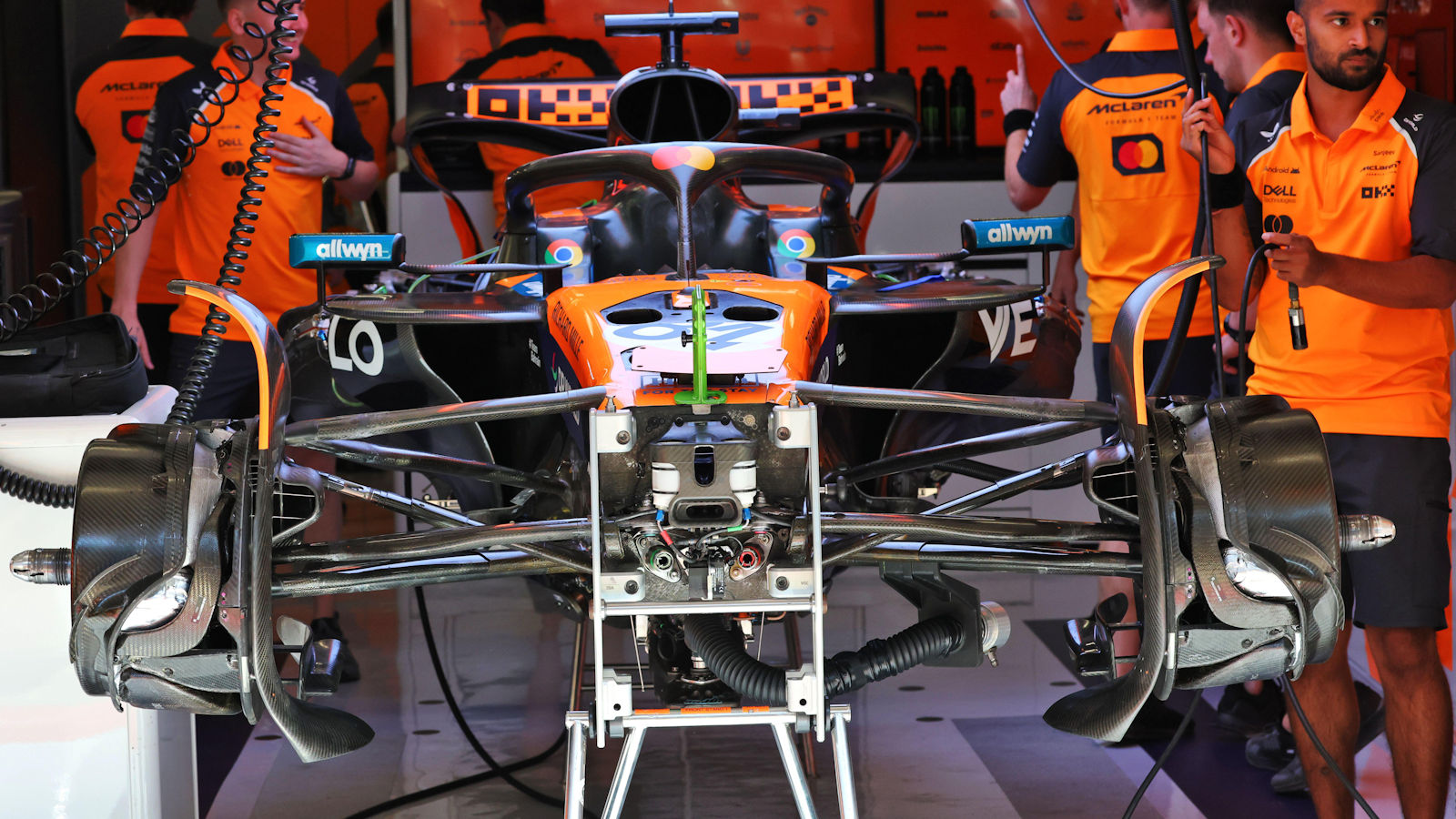
An overview of the McLaren MCL39 as it sat on the stands in the garage being prepared for action. Note the internal ducting and pipework of the front brake duct, which not only delivers cool air to the various brake components but also sets up a passage for the airflow between the drums that fit over the top.
F1 2025: The season’s winners and losers
👉 The results of the F1 2025 championship
👉 The updated Drivers’ and Constructors’ Championship standings
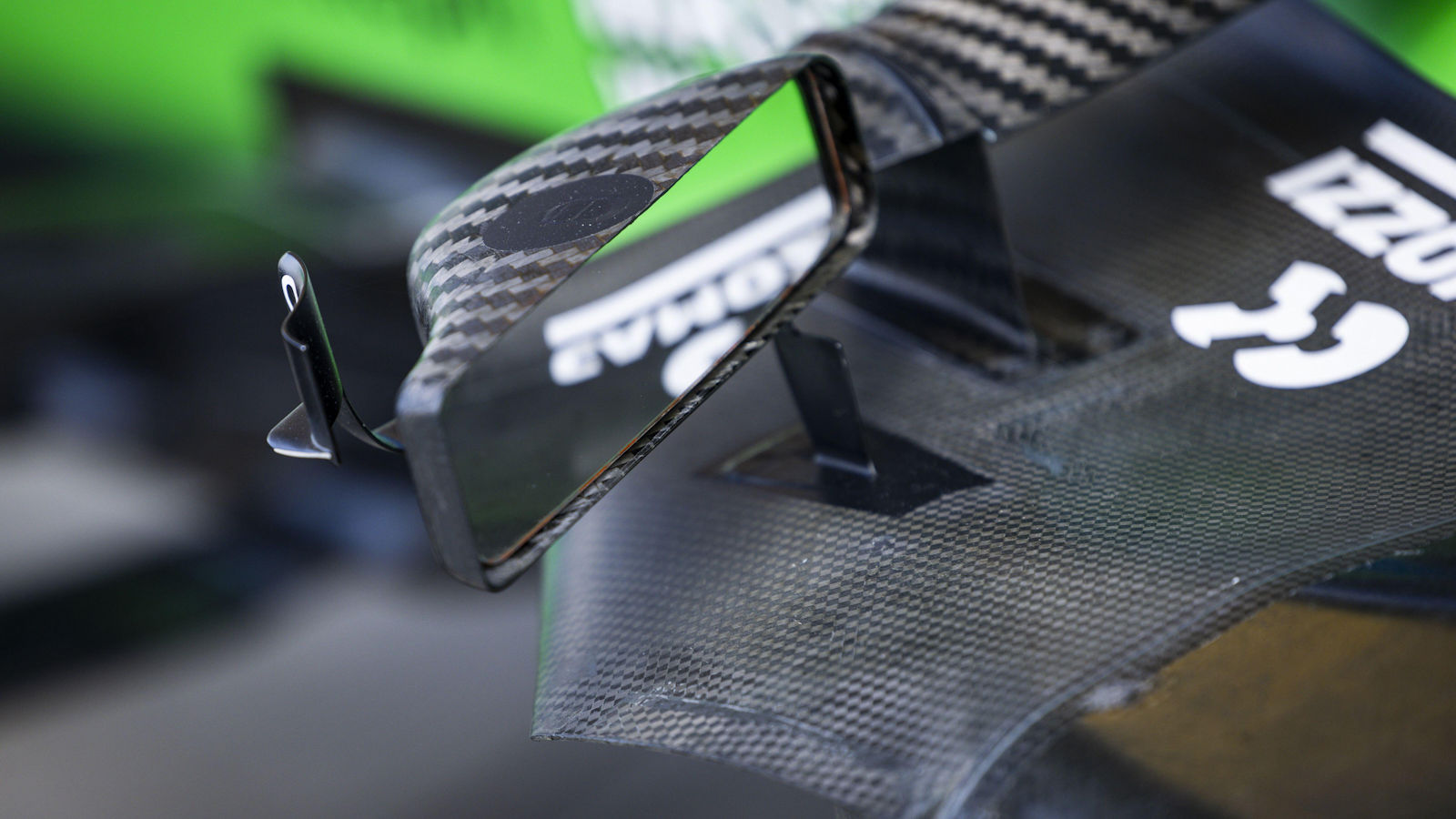
Sauber have a relatively unique winglet arrangement attached to their mirror housing to help direct the airflow around its body.
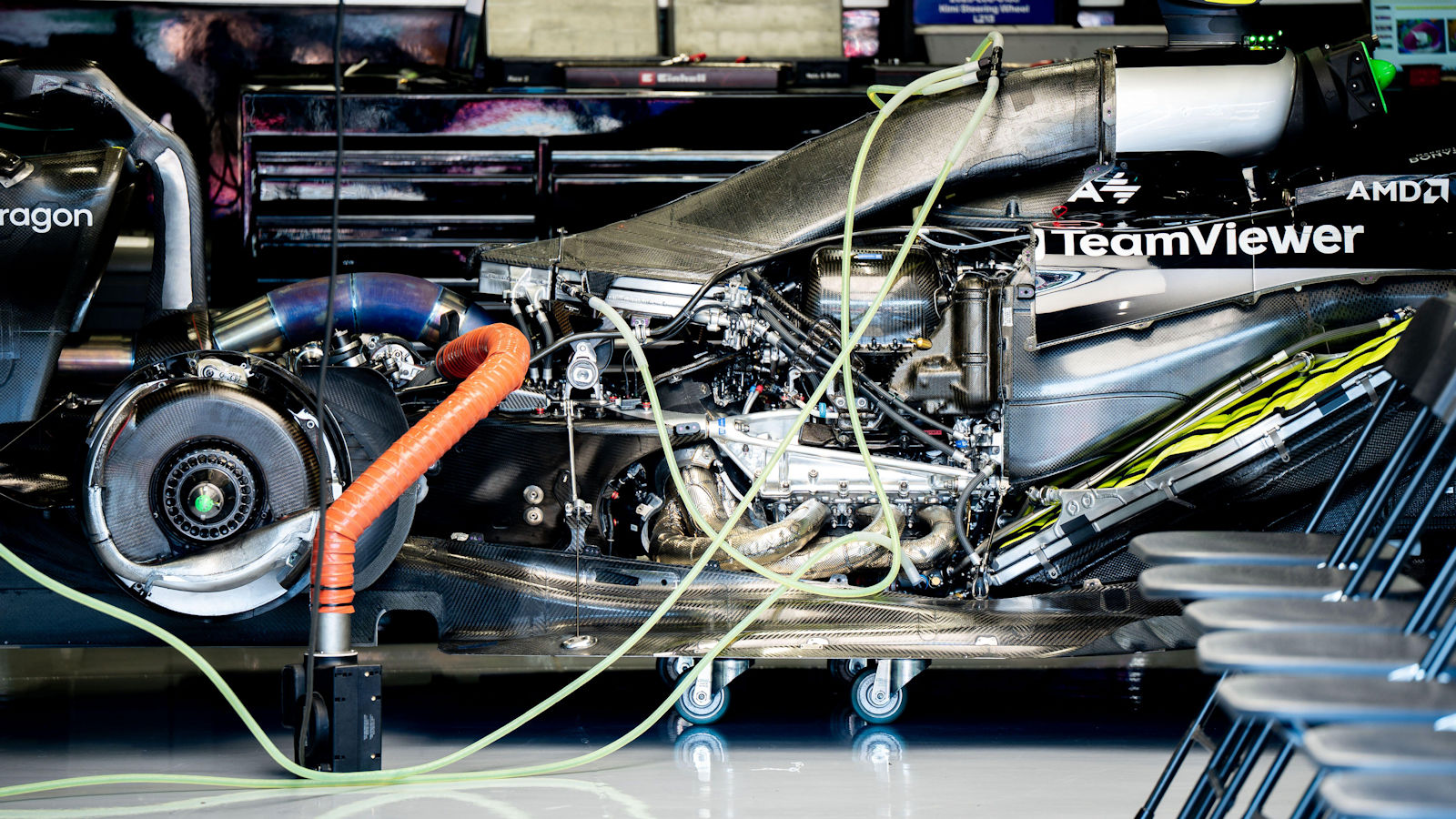
An unusual angle of the Mercedes W16 taken with the bodywork off the car shows the power unit and ancillaries installation.
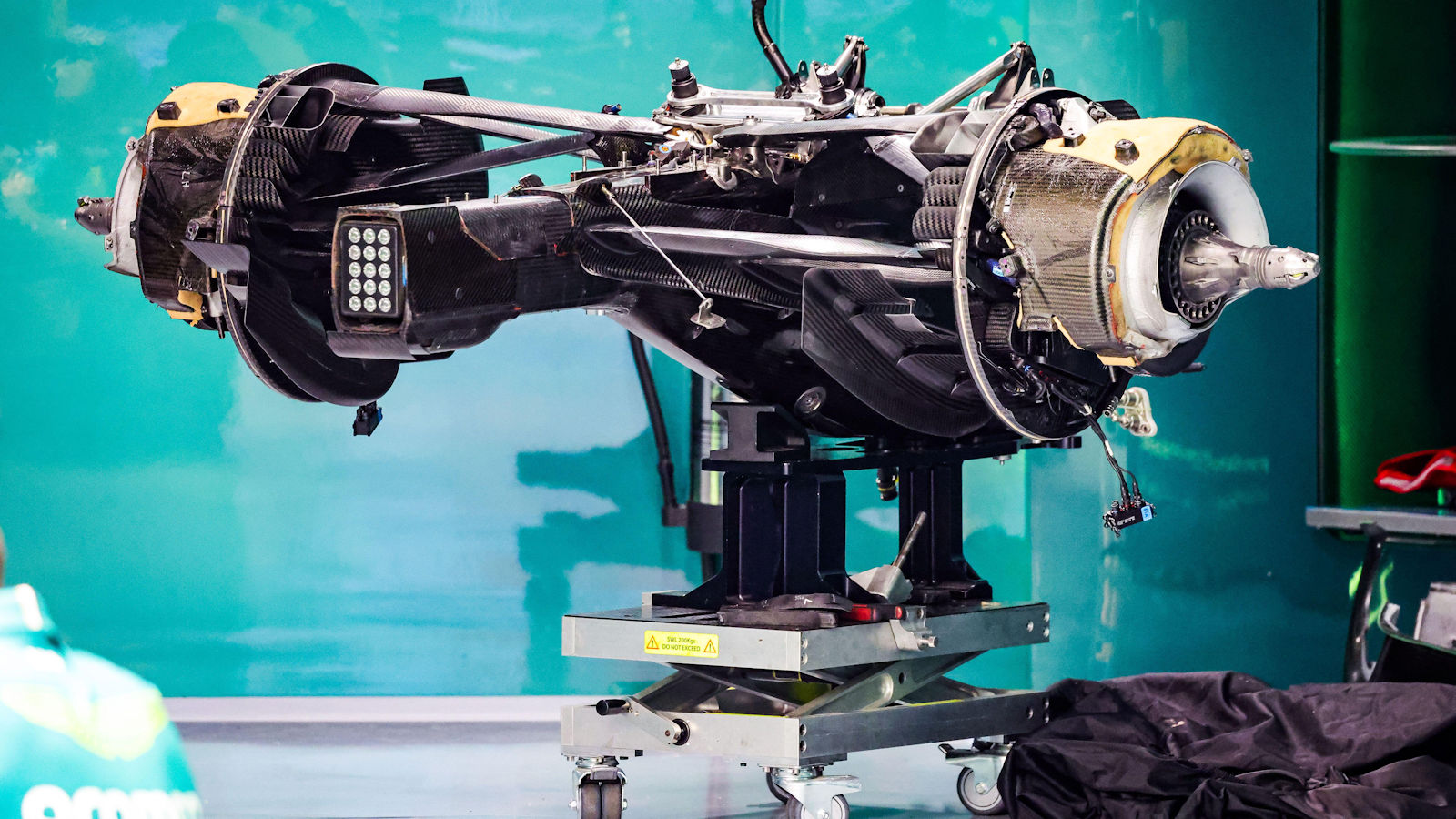
Prior to being installed on the car we’re granted a view of the rear crash structure, suspension and brake arrangement from the Aston Martin AMR25.
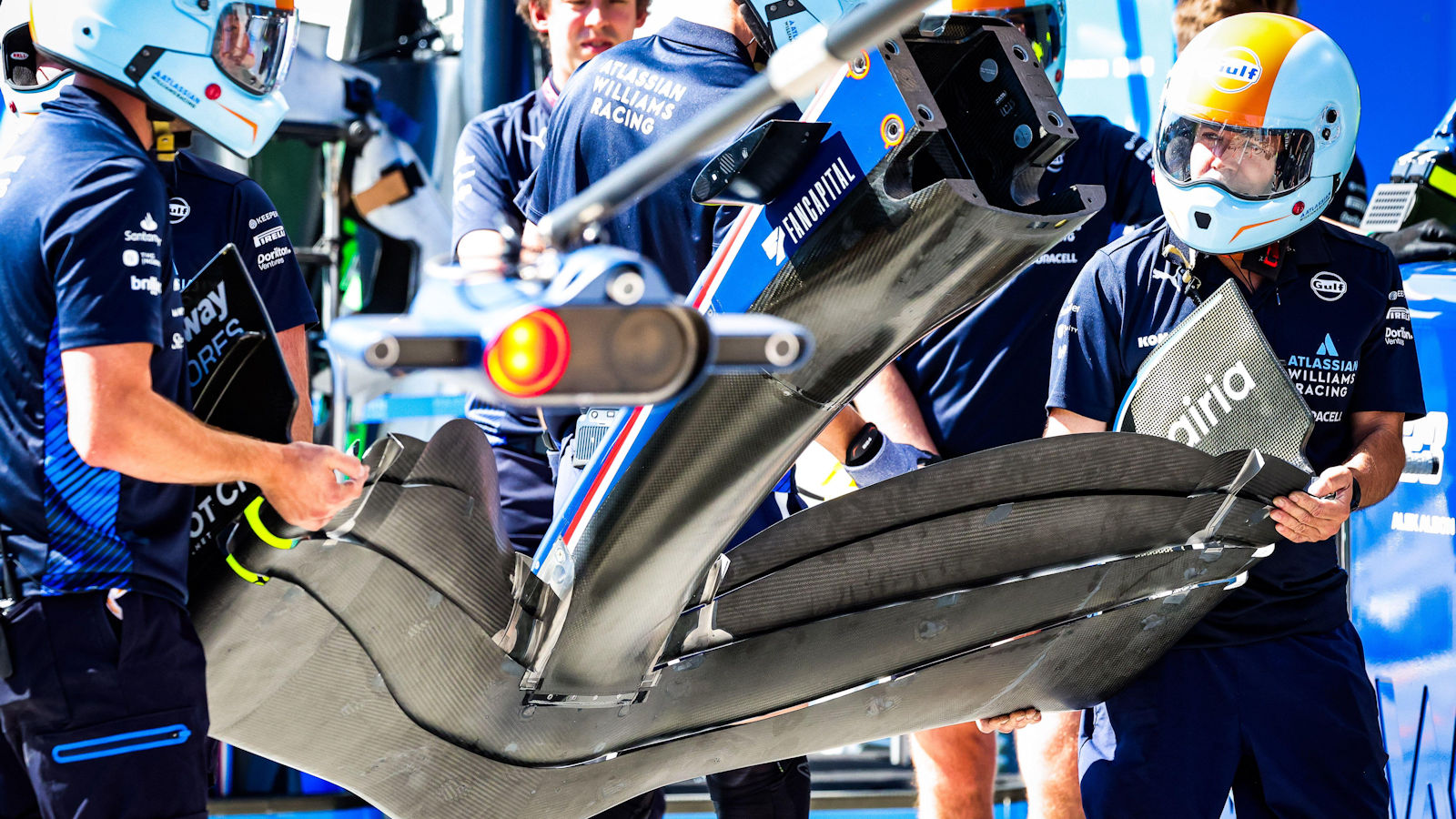
A rare glimpse under the front wing and nose assembly on the Williams FW47 reveals the various details and contours that are employed.
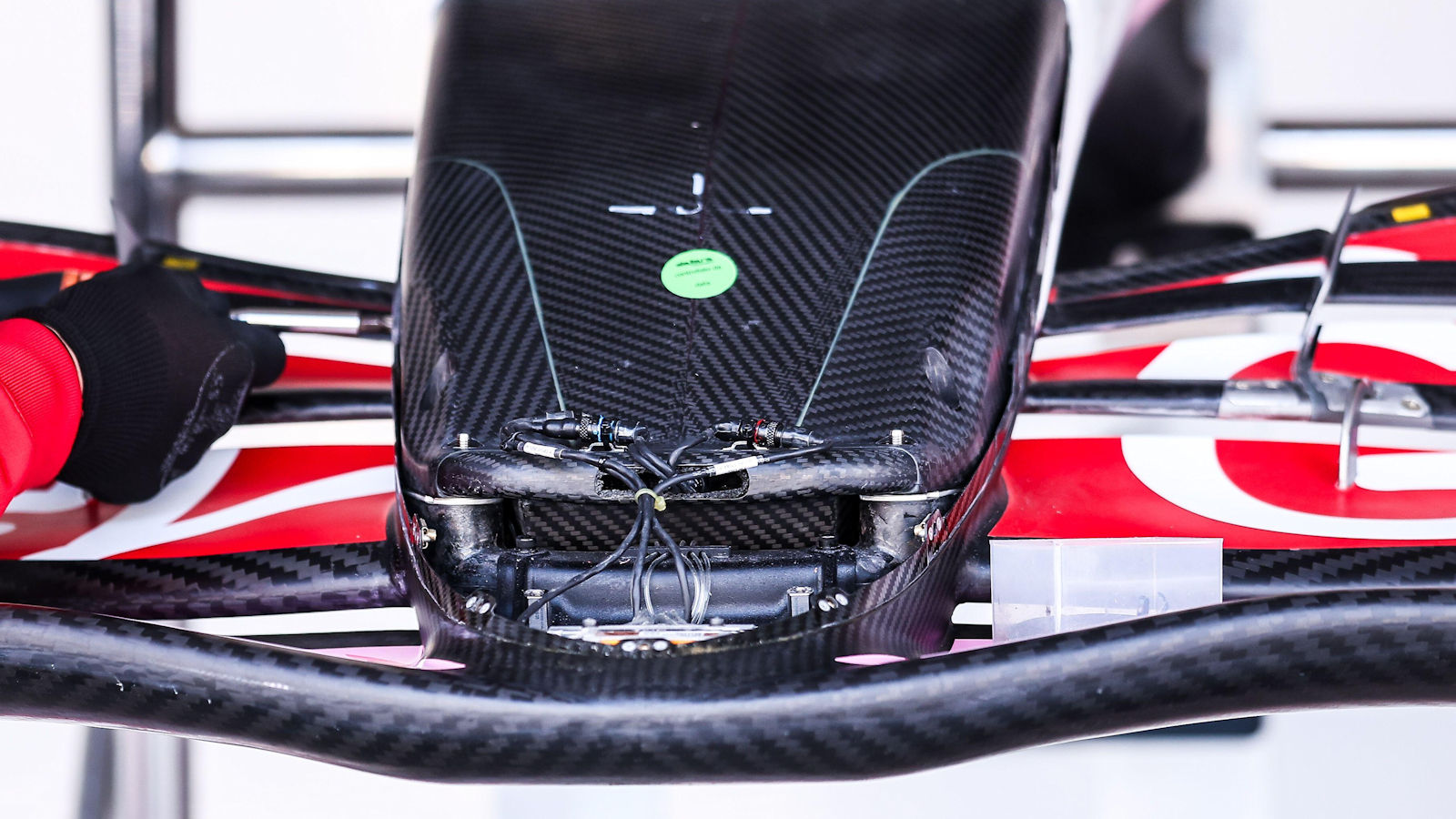
The Haas VF25’s nose without the vanity panel in place.
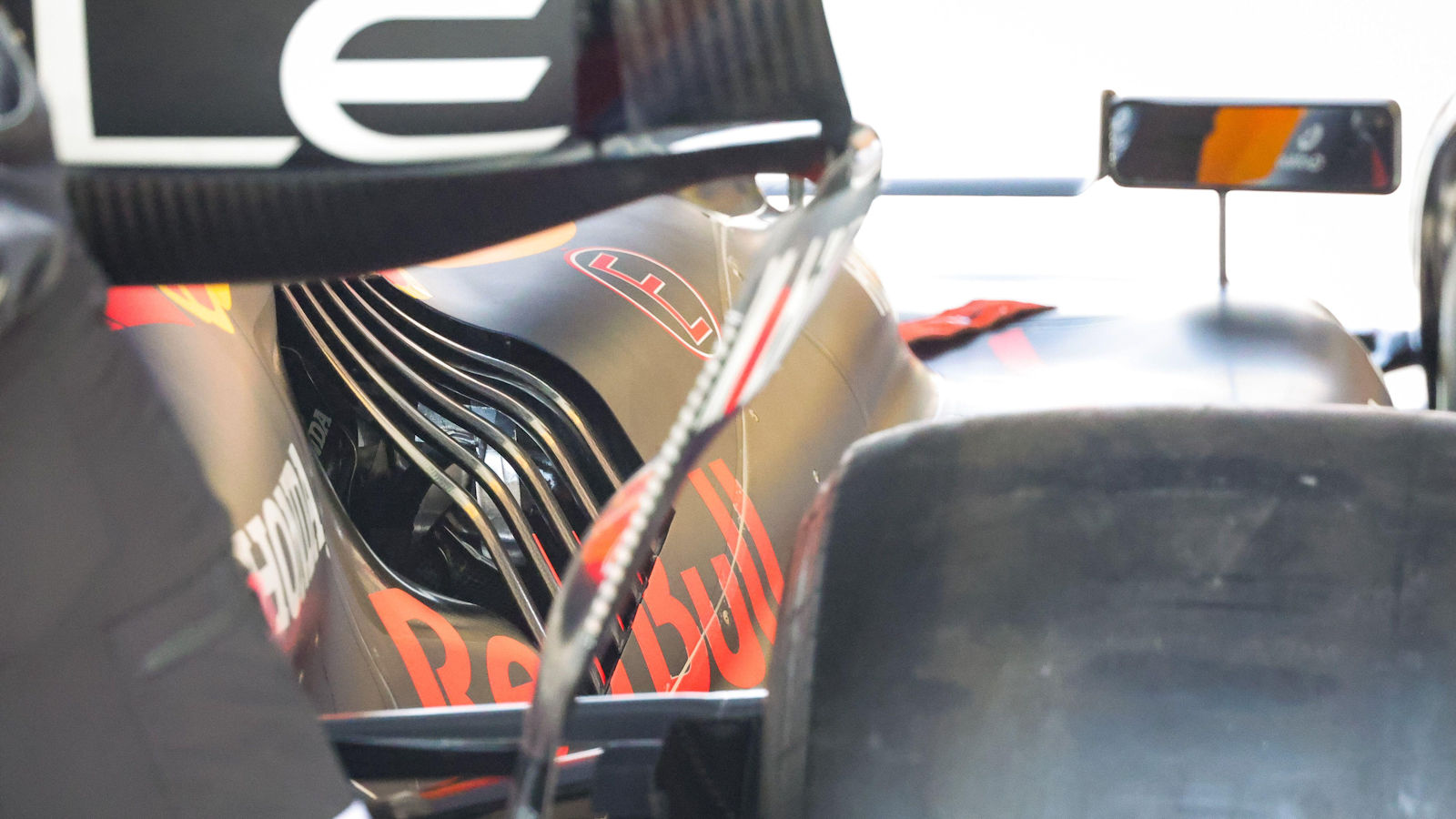
A rearward view of the largest louvred cooling panel employed on the Red Bull RB21’s engine cover.
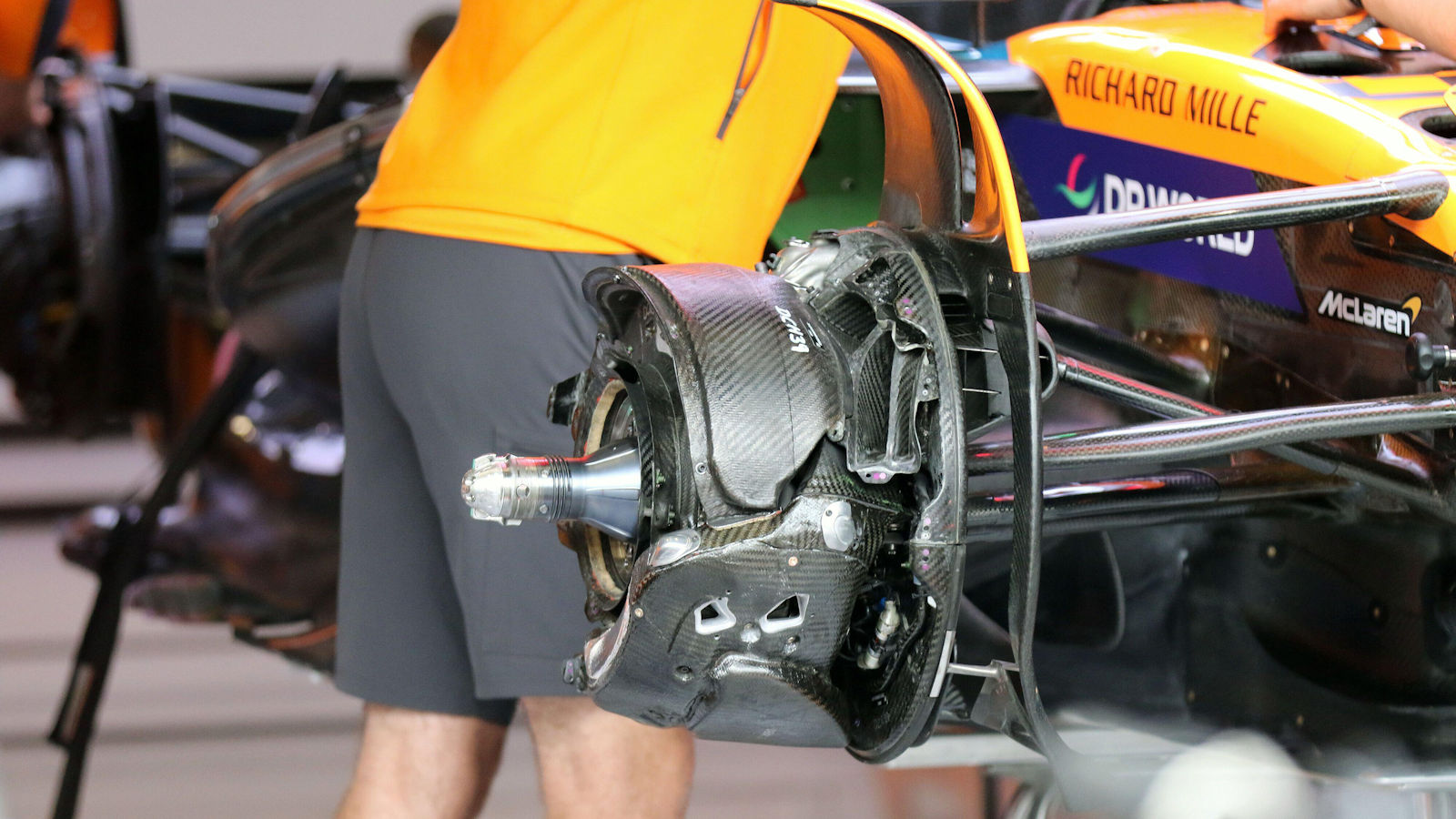
Another view of the front brake fairings at another stage in the build process.
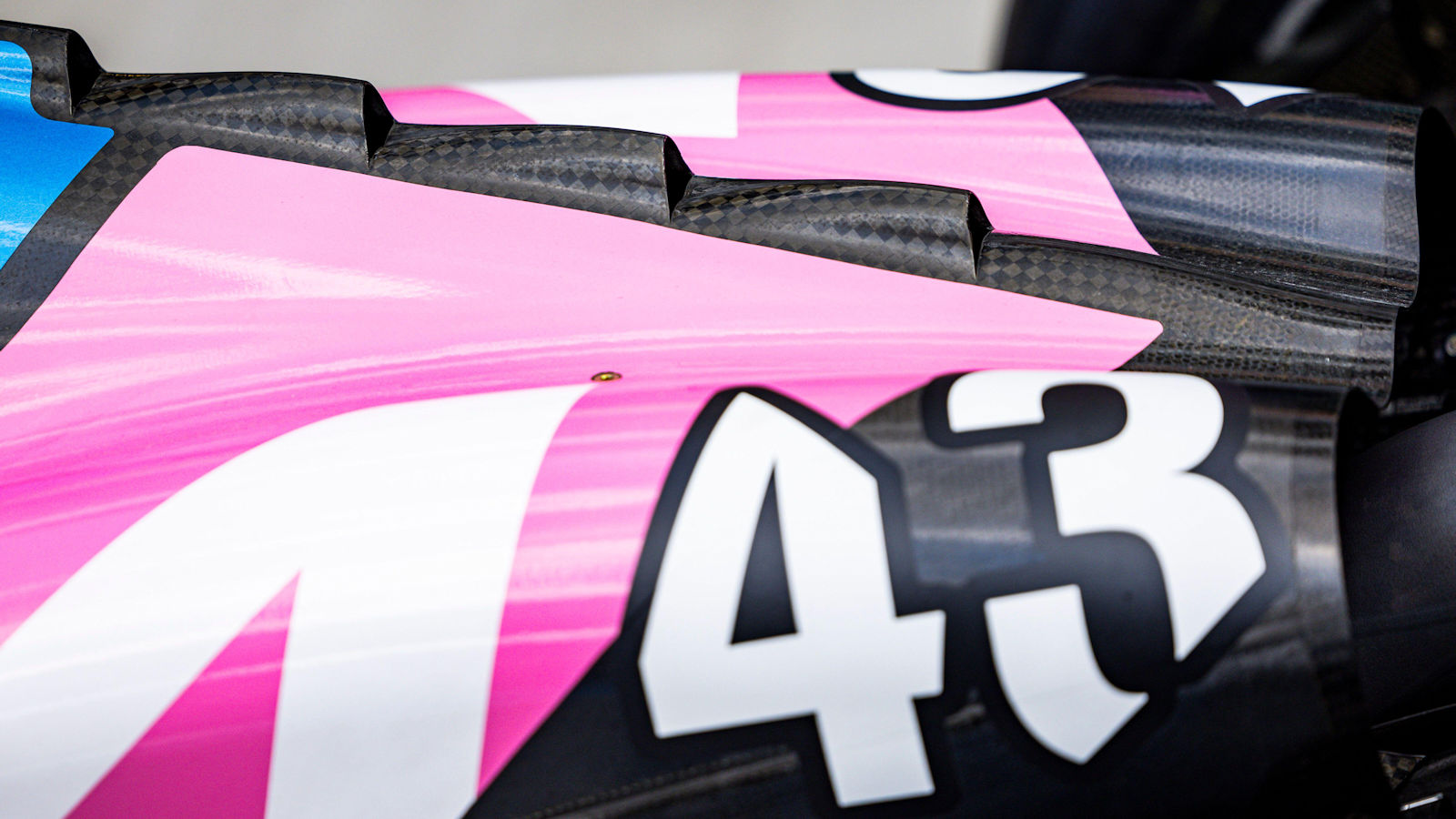
A close up of the outlets on the spine of the engine cover on the Alpine A525.
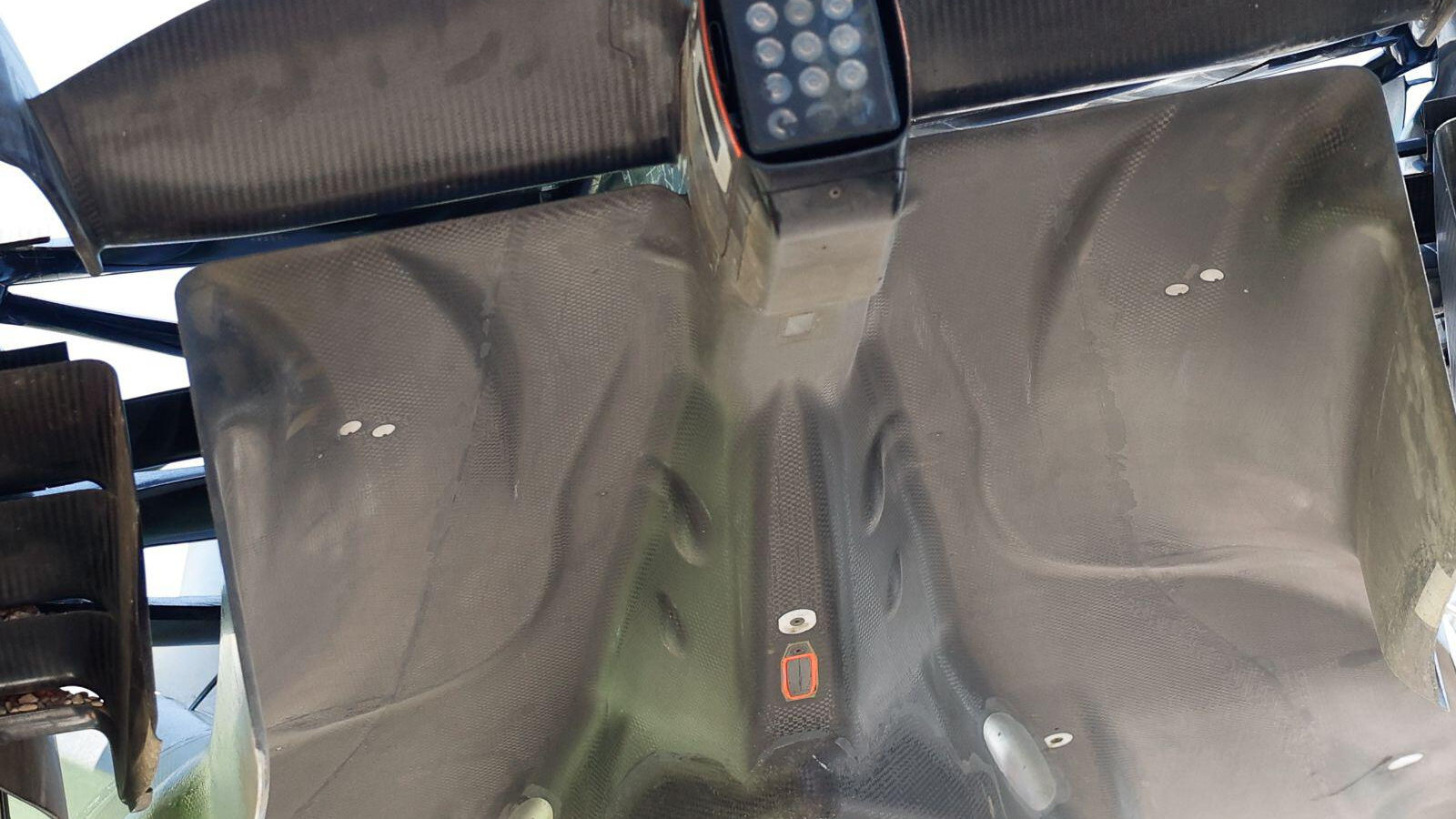
Spying on the Sauber C45’s diffuser as the car is lifted away from the circuit, results in a favourable view of the various geometrical features being employed.
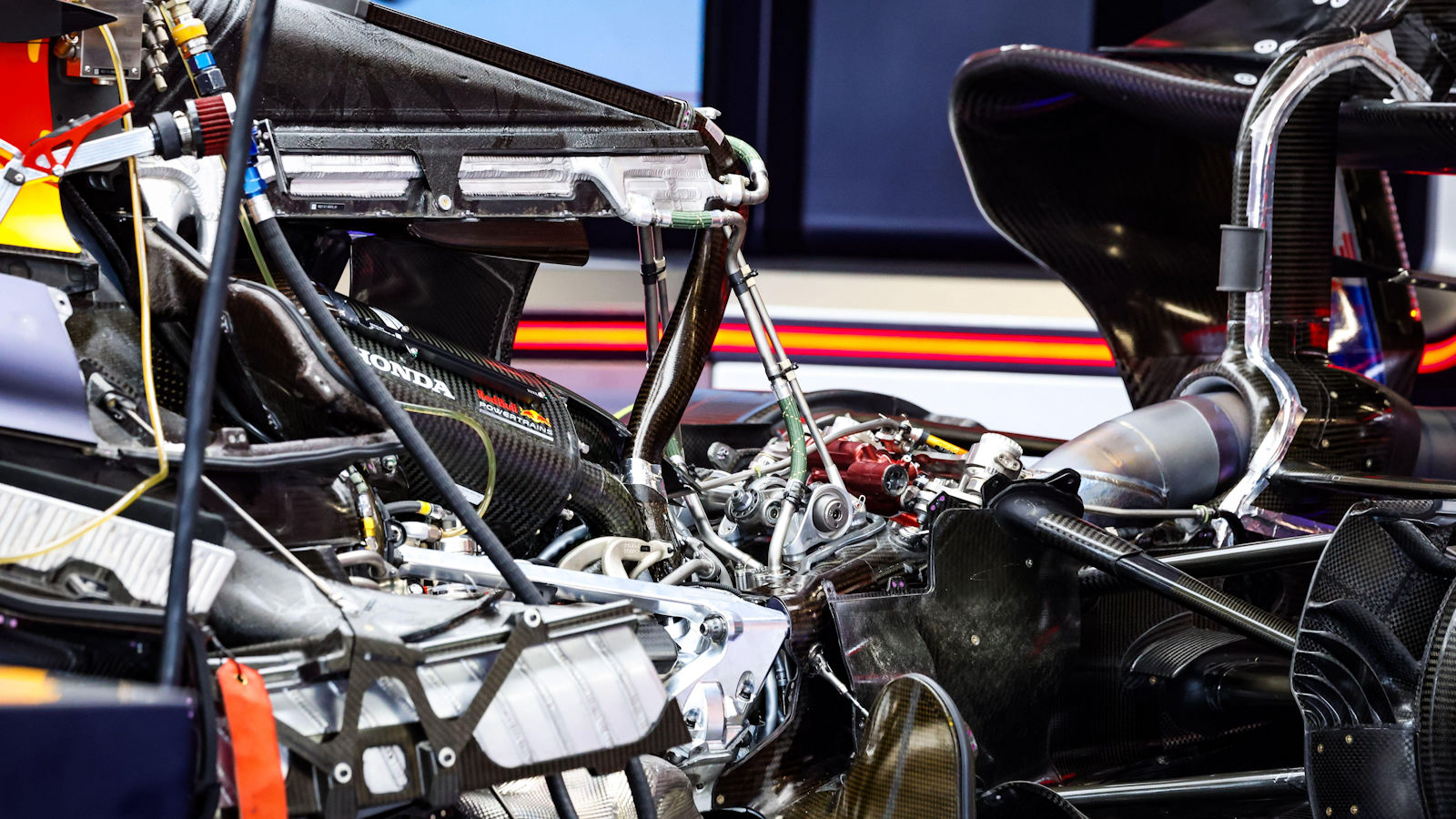
Under the covers of the Red Bull RB21 we’re treated with a view of the power unit and rear suspension, also note the vane structure on the rear brake duct’s end fence in the foreground.
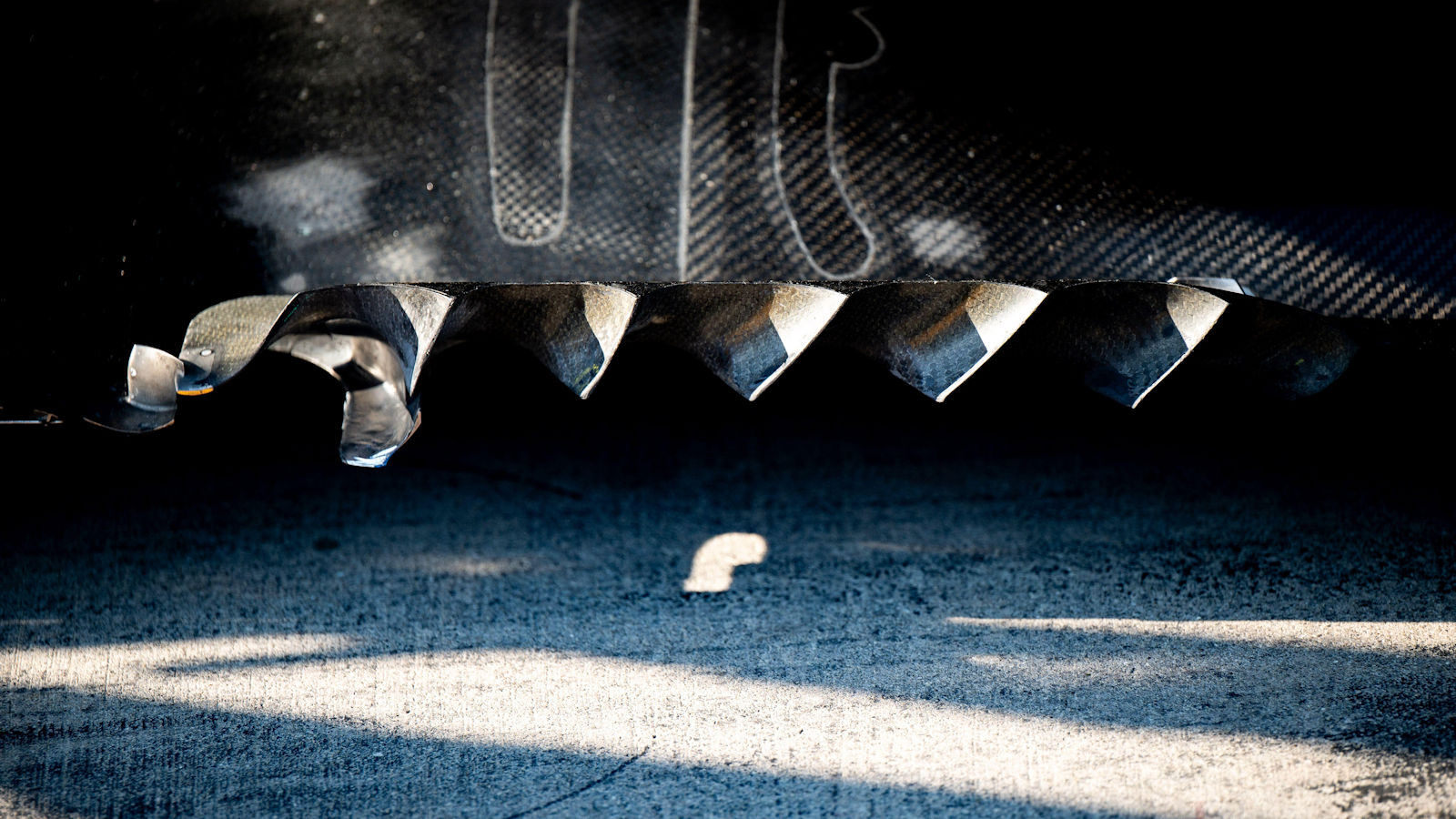
A close up of the forward, upswept section of the edge wing on the Mercedes W16, with the vanes notably angled at different rates to aid in redirecting the airflow.
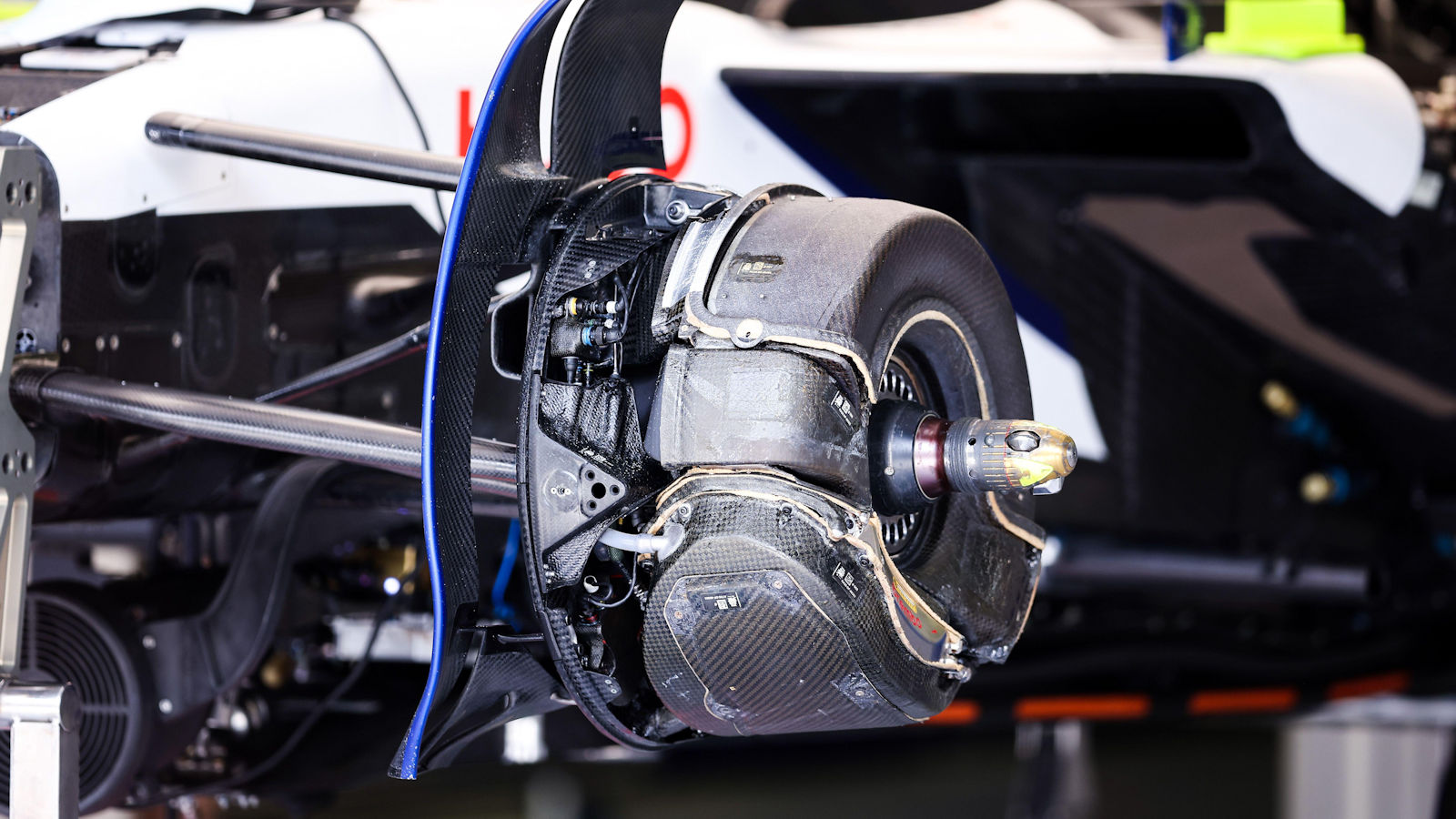
A peek under the brake drum of the Racing Bull’s VCARB02 reveals the pipework and fairings used to deliver cool air to the brake components.
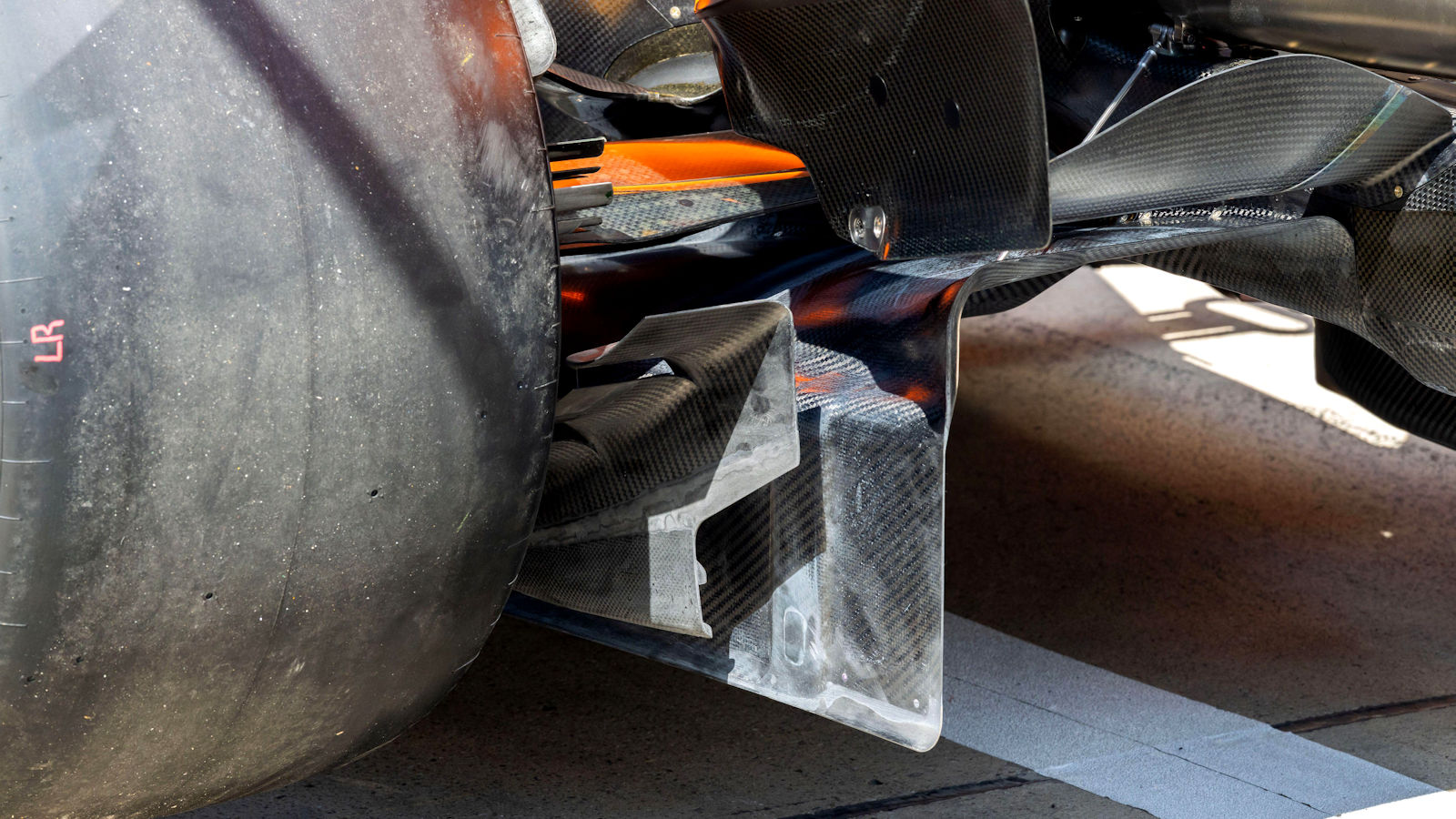

The rear corner of the McLaren MCL39 which reveals detail on the upper corner of the diffuser and the cutout and notches used in their design of the rear brake duct’s lower winglet.
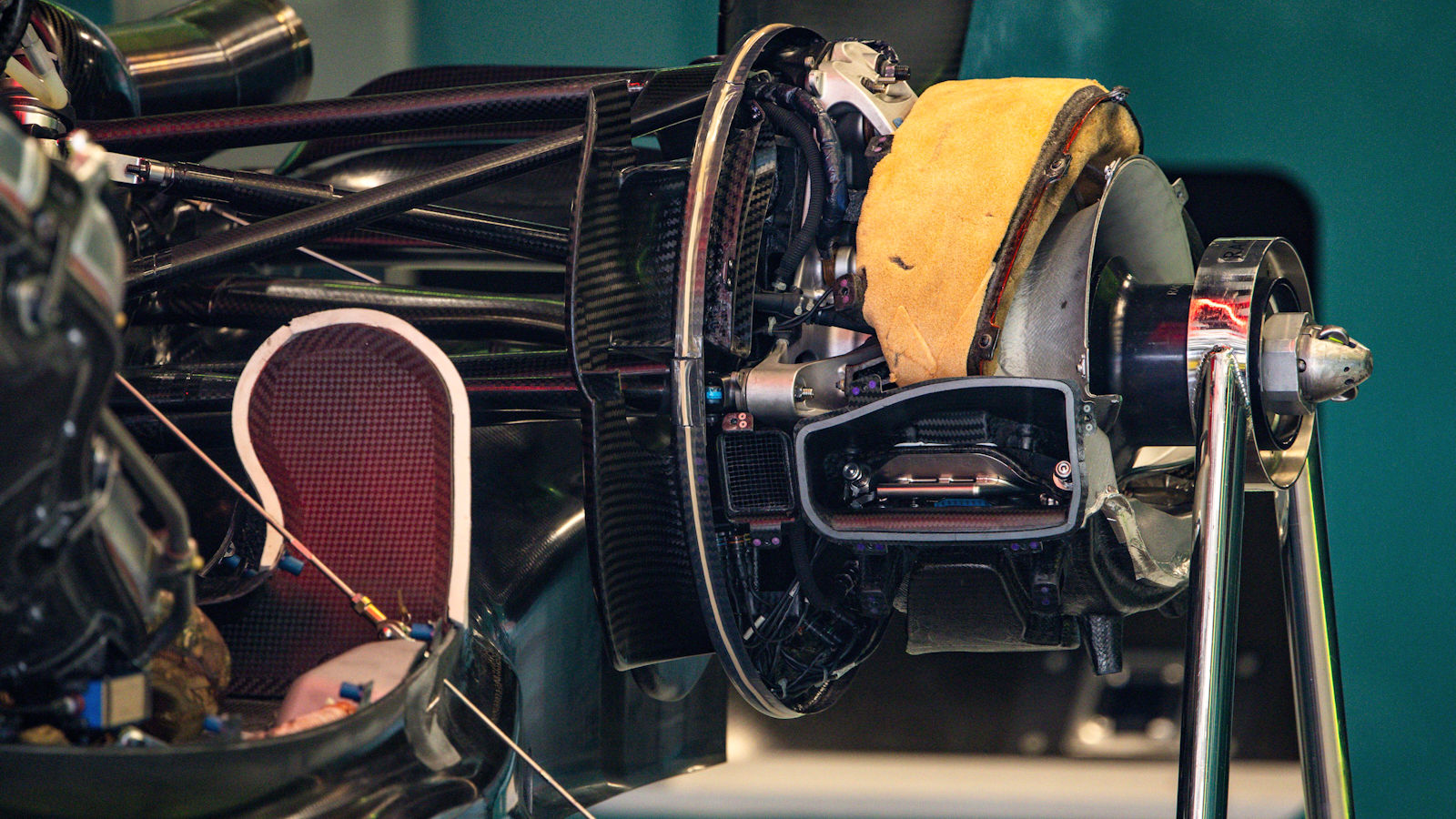
The rear brake assembly on the Aston Martin prior to the drums being installed permits us a view of the brake disc and caliper fairings.
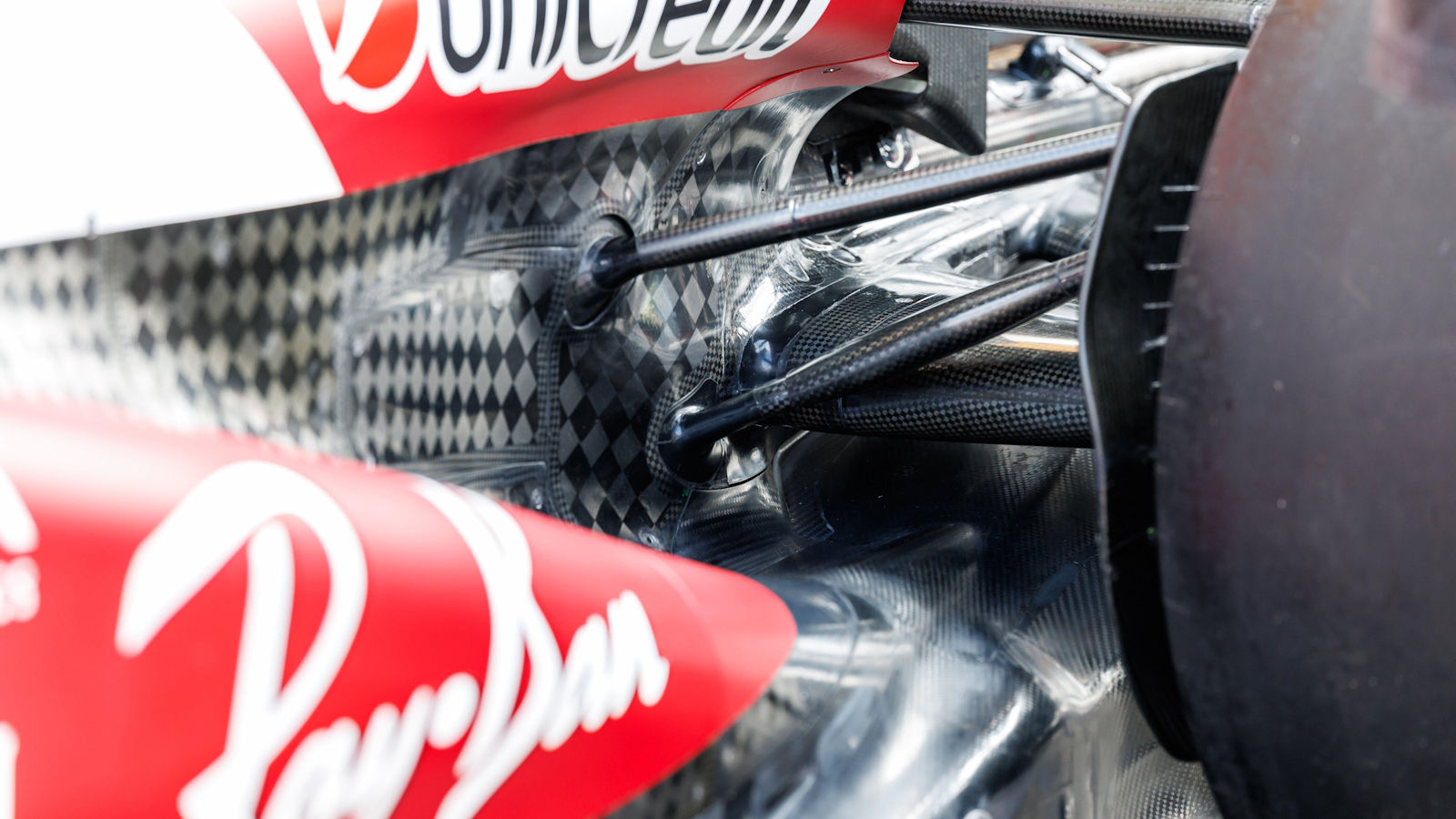
The Ferrari SF-25’s rear suspension arrangement.
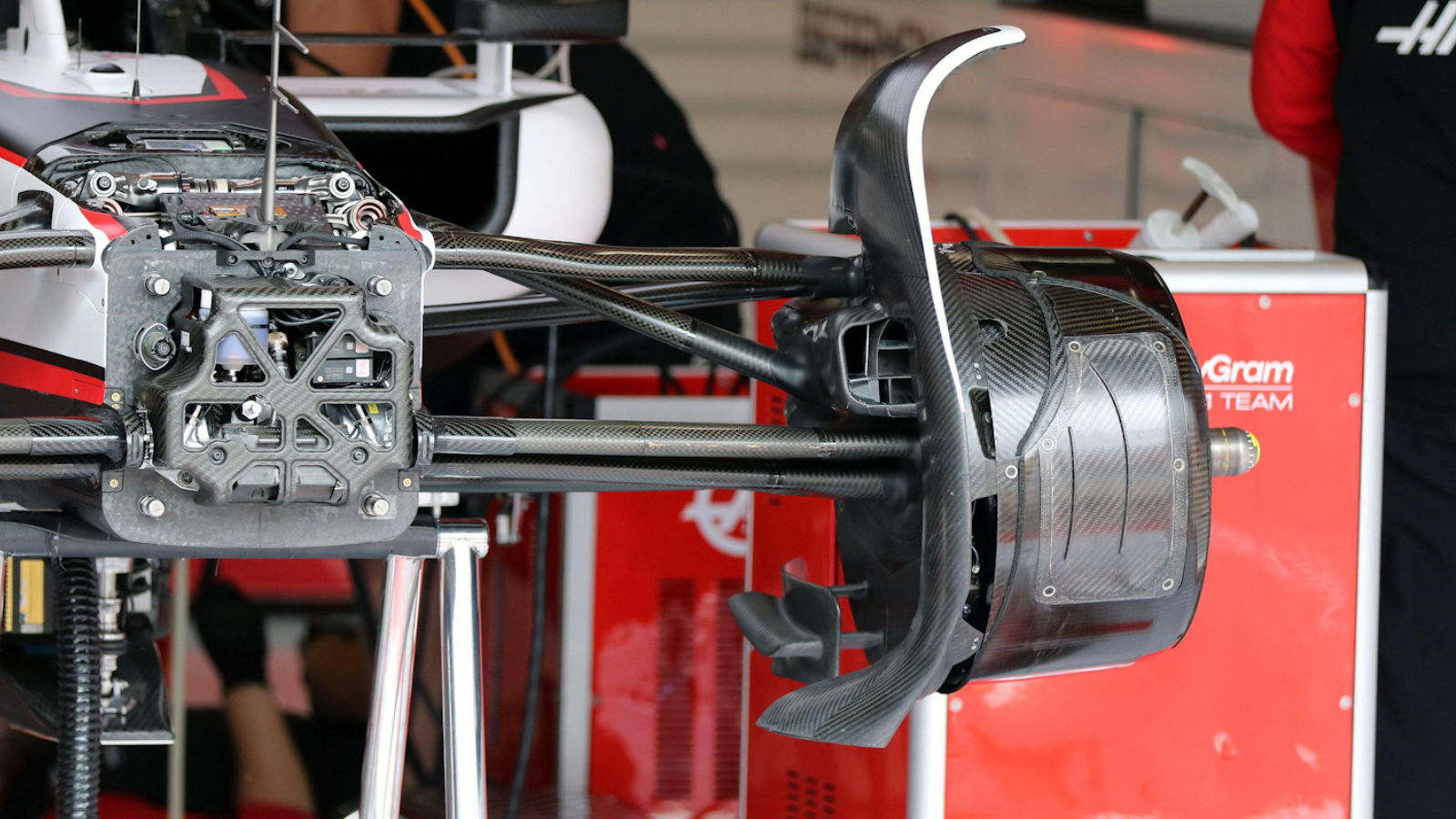
The Haas VF-25’s front brake inner drum arrangement, which has small vanes to help direct the airflow between this drum and the outer one that’s placed over it.
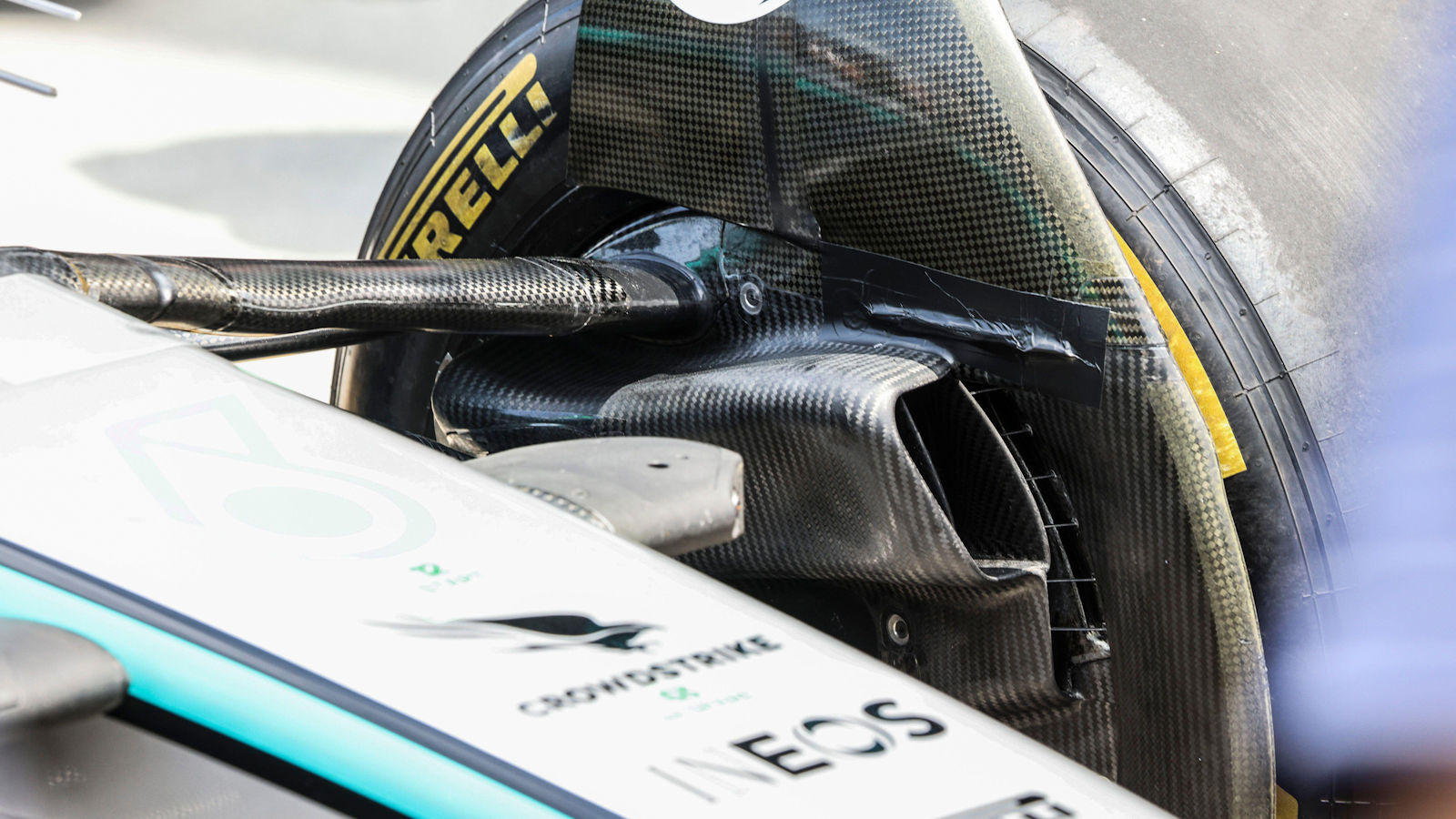

A close up of the front brake duct inlet on the Mercedes W16, which notably has a more slender entrance in the lower portion.
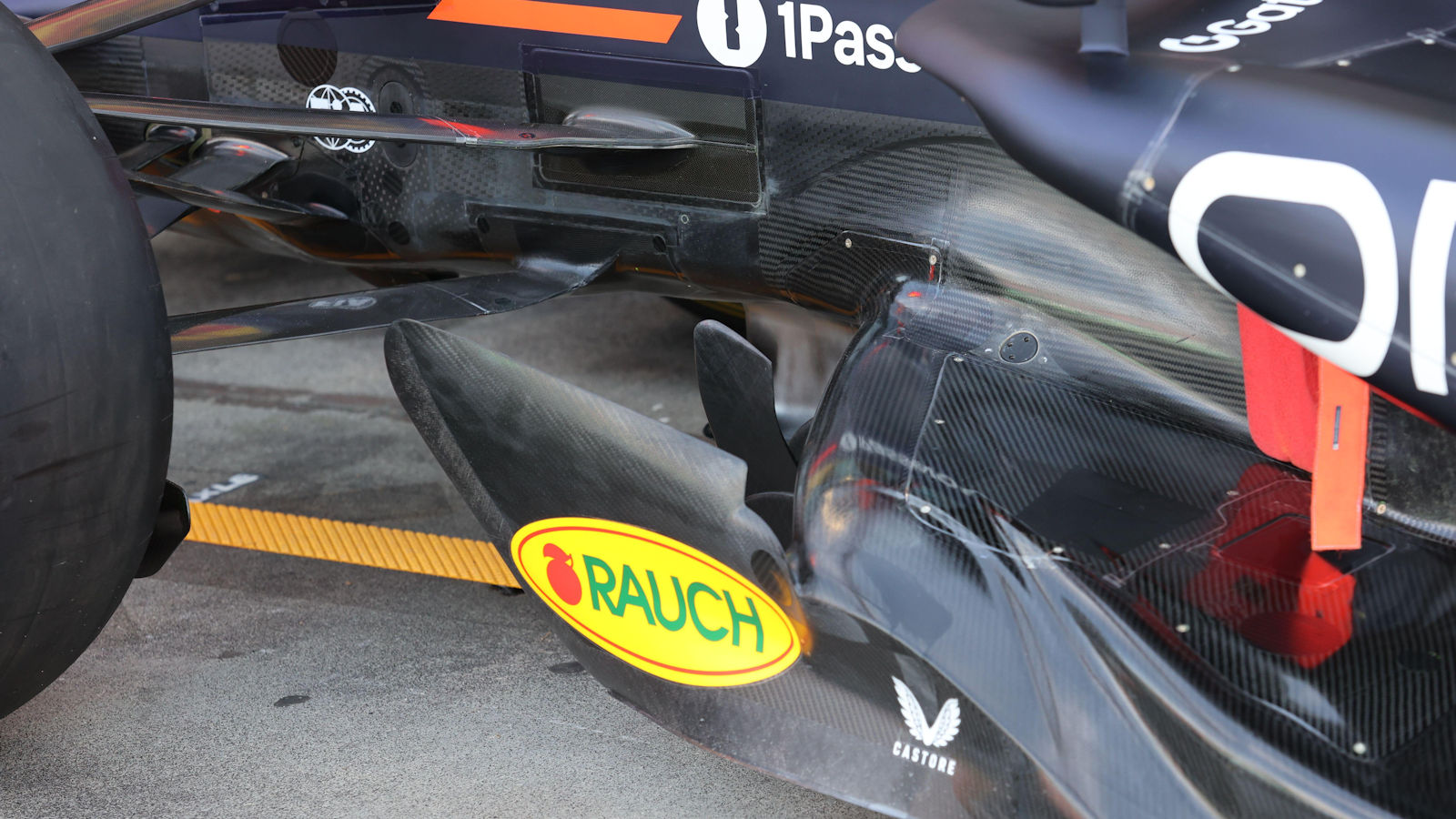
A look at the front suspension fairings and floor fences on the Red Bull RB21
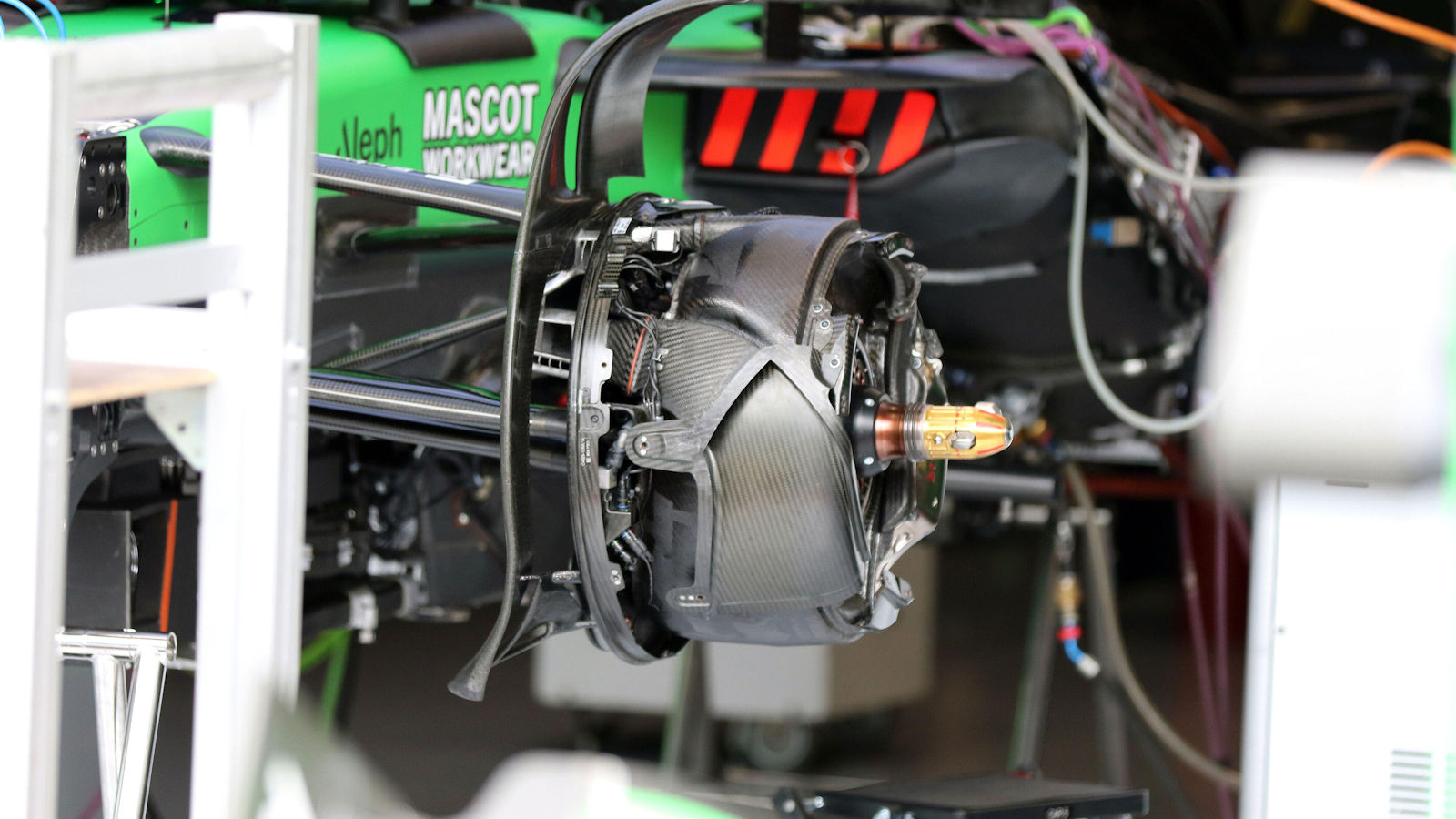
Under the front brake duct’s outer drum cover we can see the pipework and fairings used to distribute cool air to the various brake components.


The rear corner of the McLaren MCL39 which reveals detail on the upper corner of the diffuser and the cutout and notches used in their design of the rear brake duct’s lower winglet.
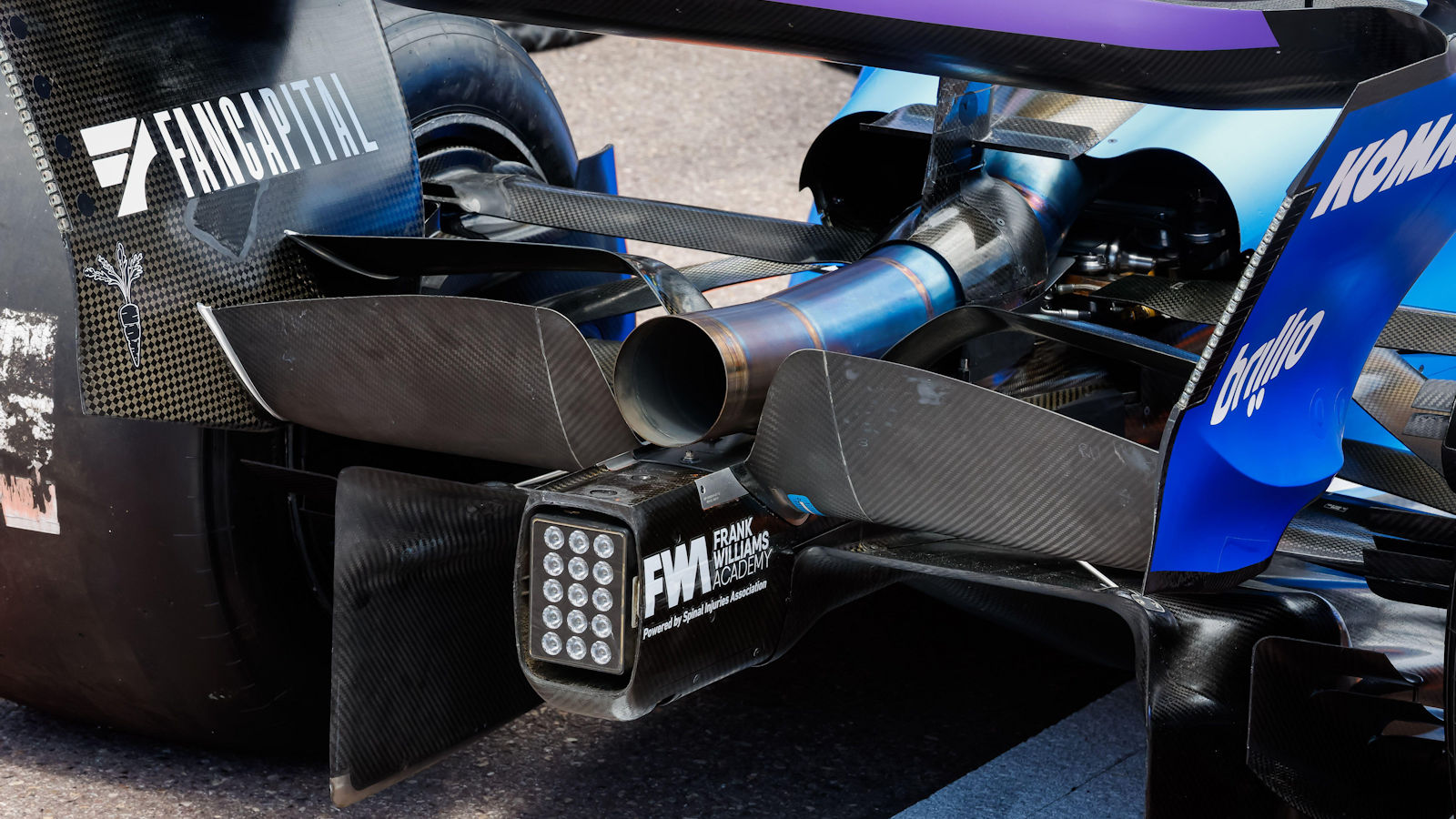
The high downforce bi-plane style beam wing arrangement on the Williams FW47, which is supplemented by the mini-winglet attached to the rear wing support pillar ahead of it.
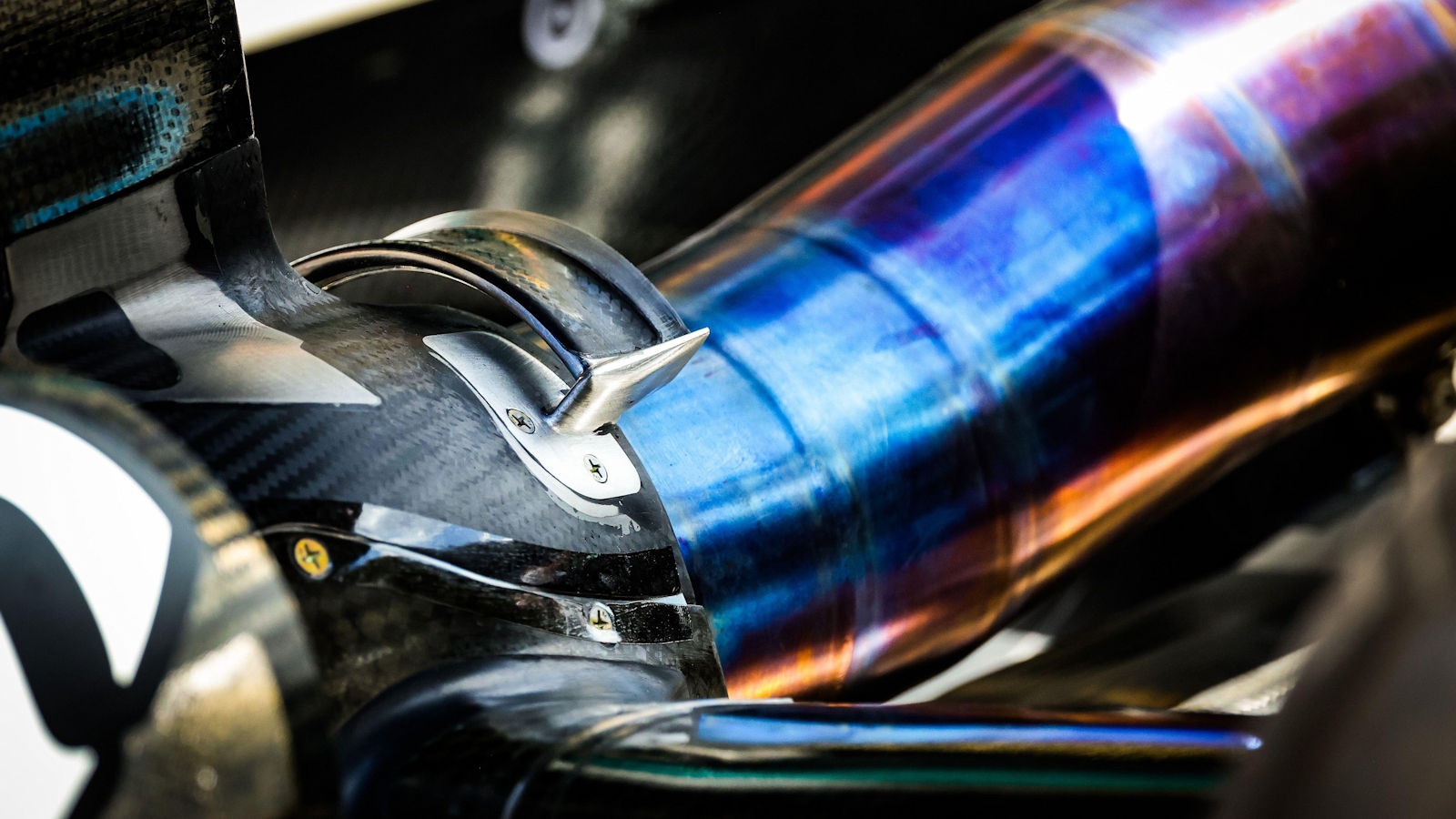
A look at the double element mini-winglet mounted on the trailing edge of the rear wing pillar.


A close up of the front brake duct inlet on the Mercedes W16, which notably has a more slender entrance in the lower portion.


A peek beneath the front brake drum covers on the Red Bull RB21 reveals the ducting and fairings used to direct cool air to the various brake components.
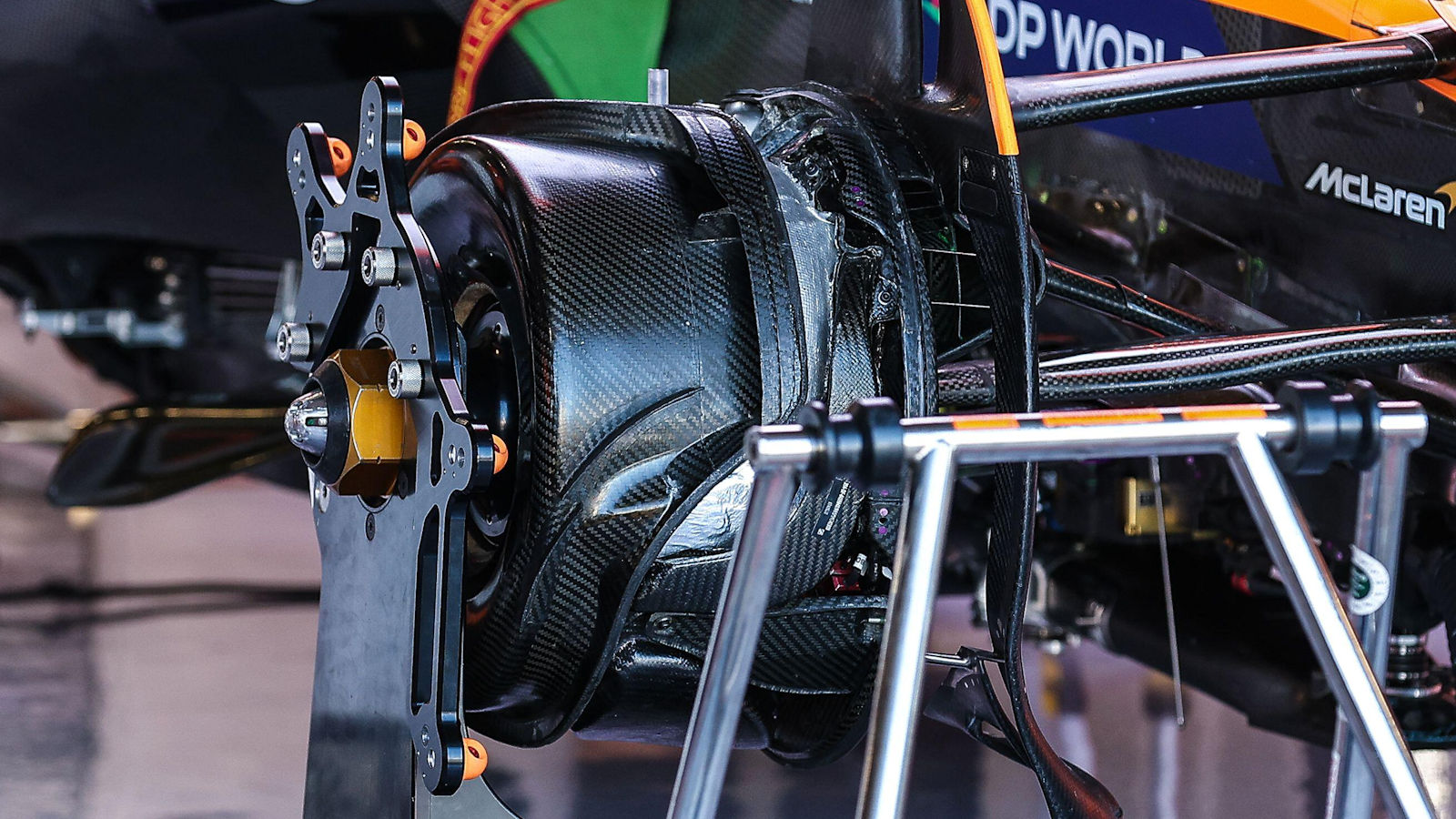
A close up of the inner drum arrangement of the McLaren MCL39, which shows how the airflow is moved in the void between this drum and the outer one that will be placed over it.
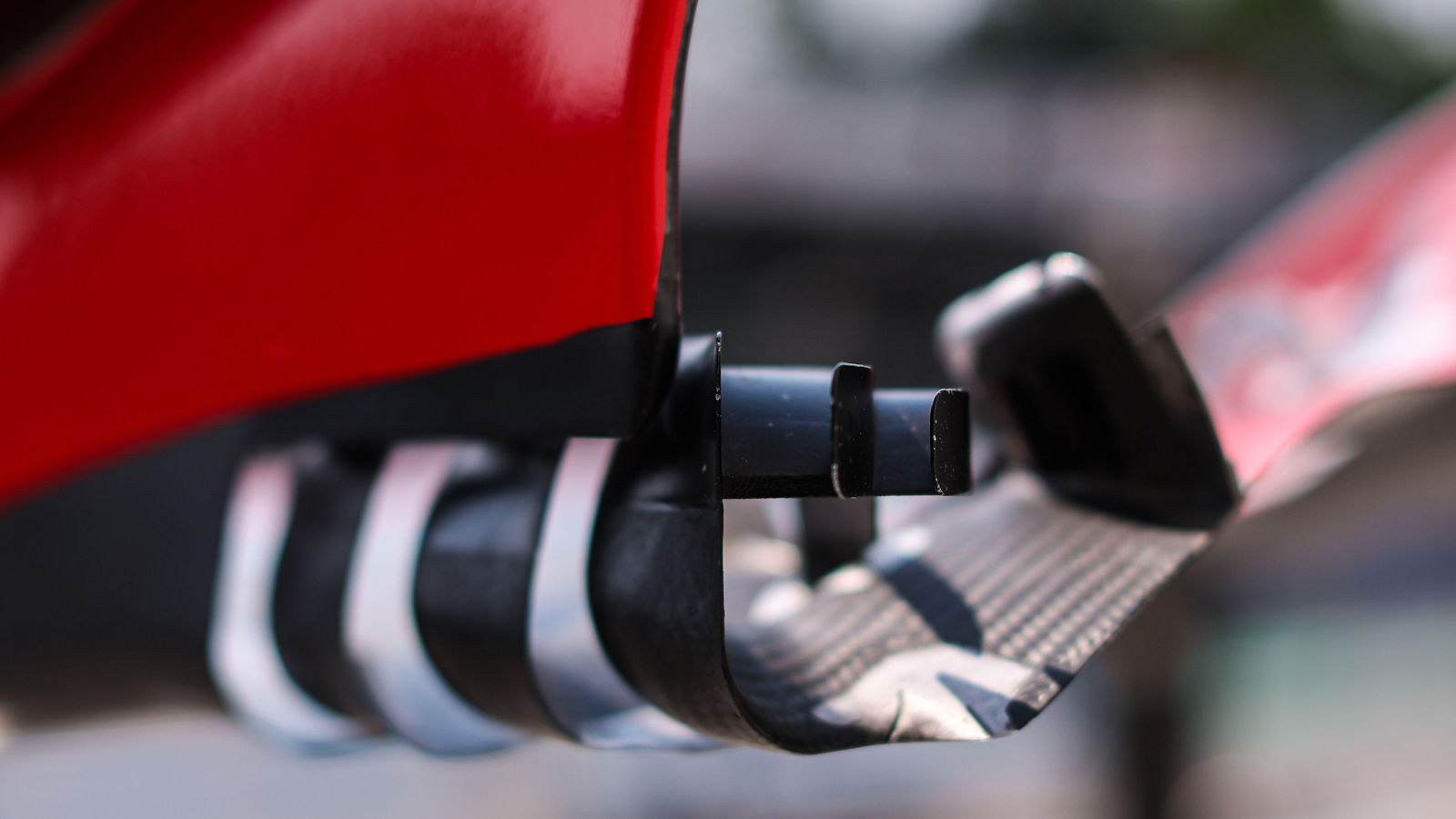
A close up of the endplate flaps and mini-winglets used to outwash the airflow on the Haas VF25’s front wing.
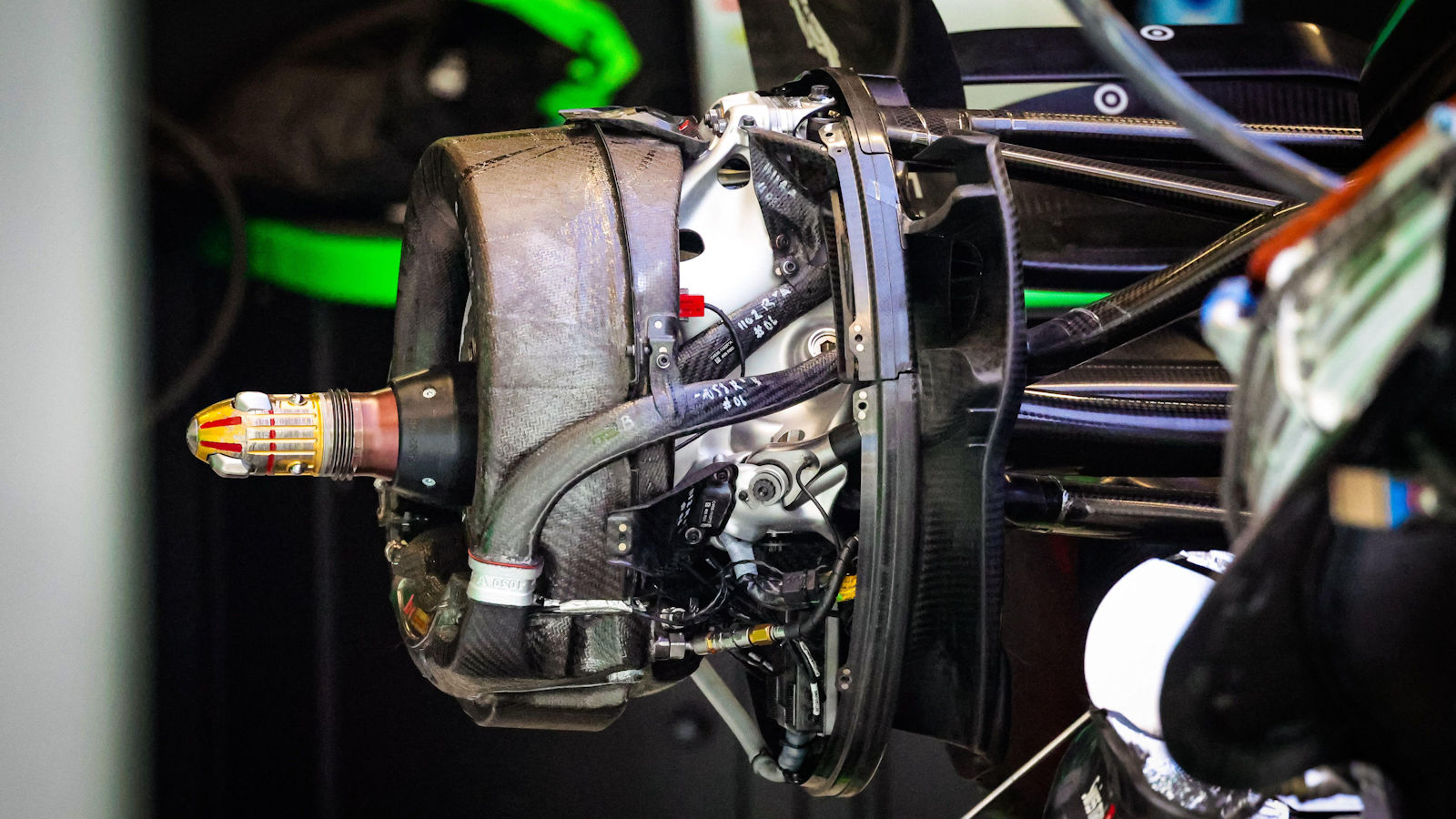
A look under the rear brake duct’s drum cover shows the fairing that envelopes the brake disc and the pipework that feeds cool air to the caliper.
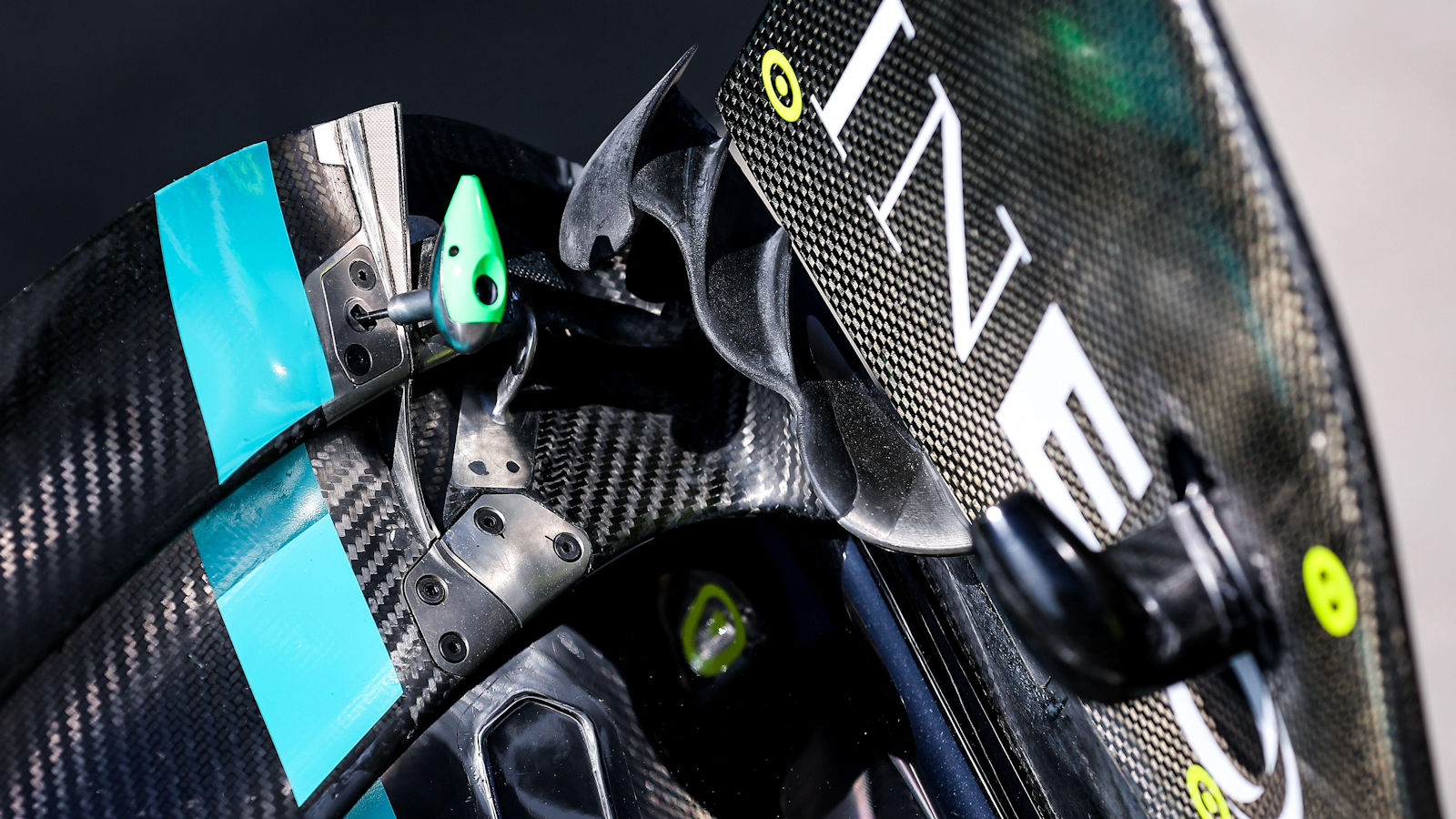
The intricate detailing in the lower rear corner of the front wing and endplate juncture on the Mercedes W16, with the vane on top of the flap tips shaped to promote more outwash, which is enabled by the cutout in the endplate’s lower rear corner.
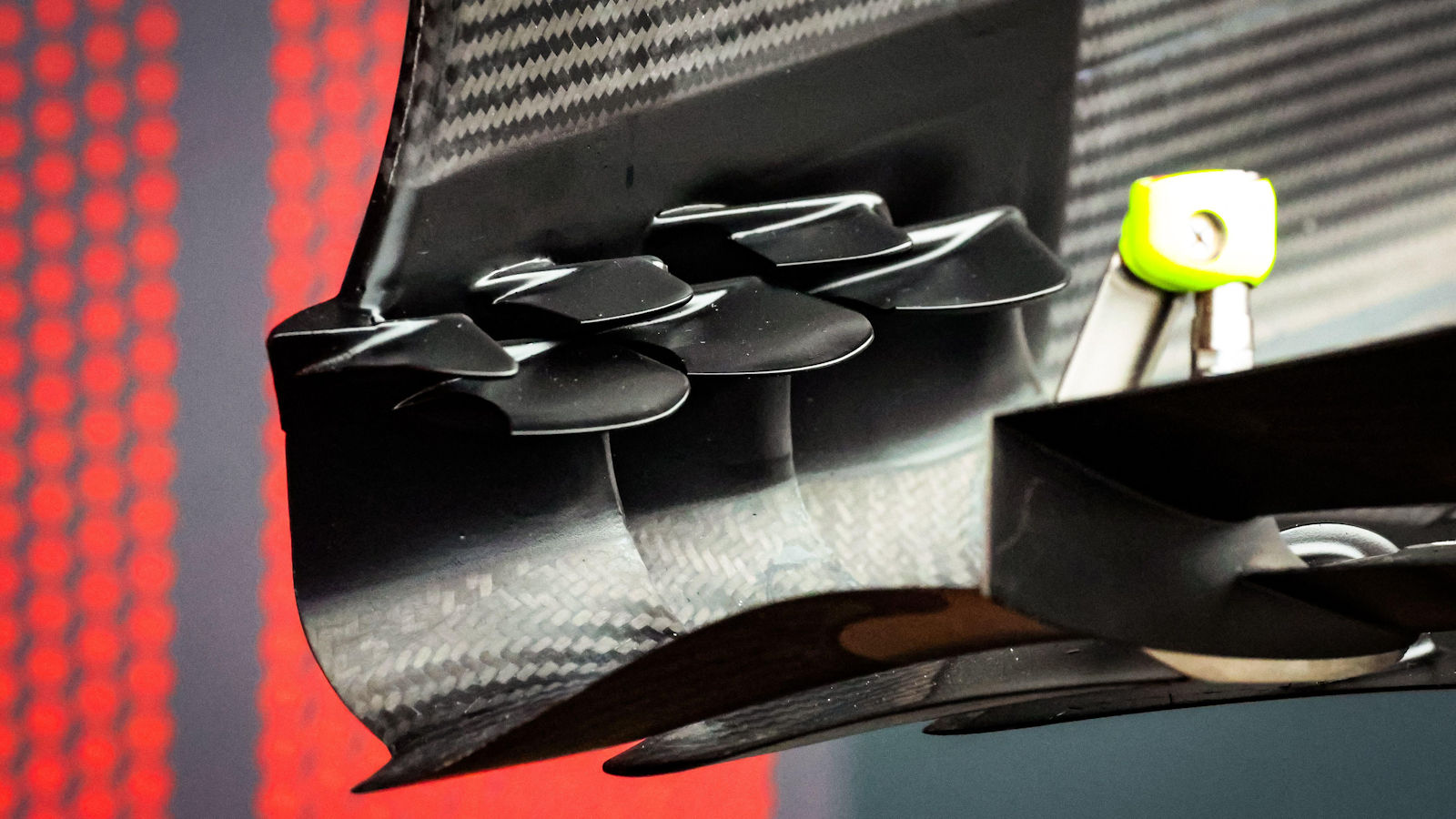
A fantastic view of the ‘mermaid tail’ winglet arrangement in the lower rear corner of the McLaren MCL39’s front wing
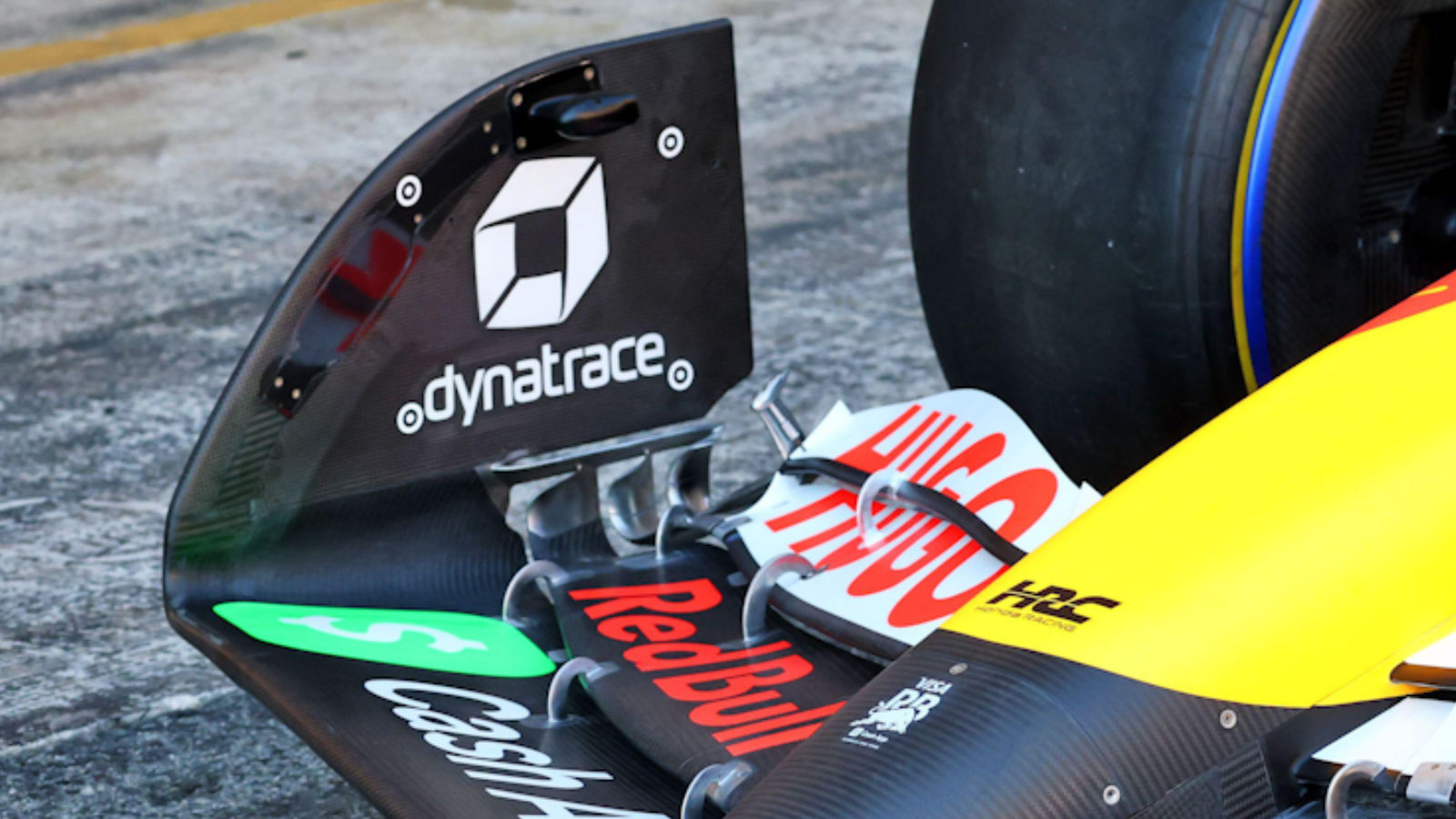
A close up of the front wing assembly on the Racing Bulls VCARB02, which features a longitudinal vane that displaces the tip sections of the three rearward flaps from the endplate’s vertical plane, altering how the outwash is being generated.
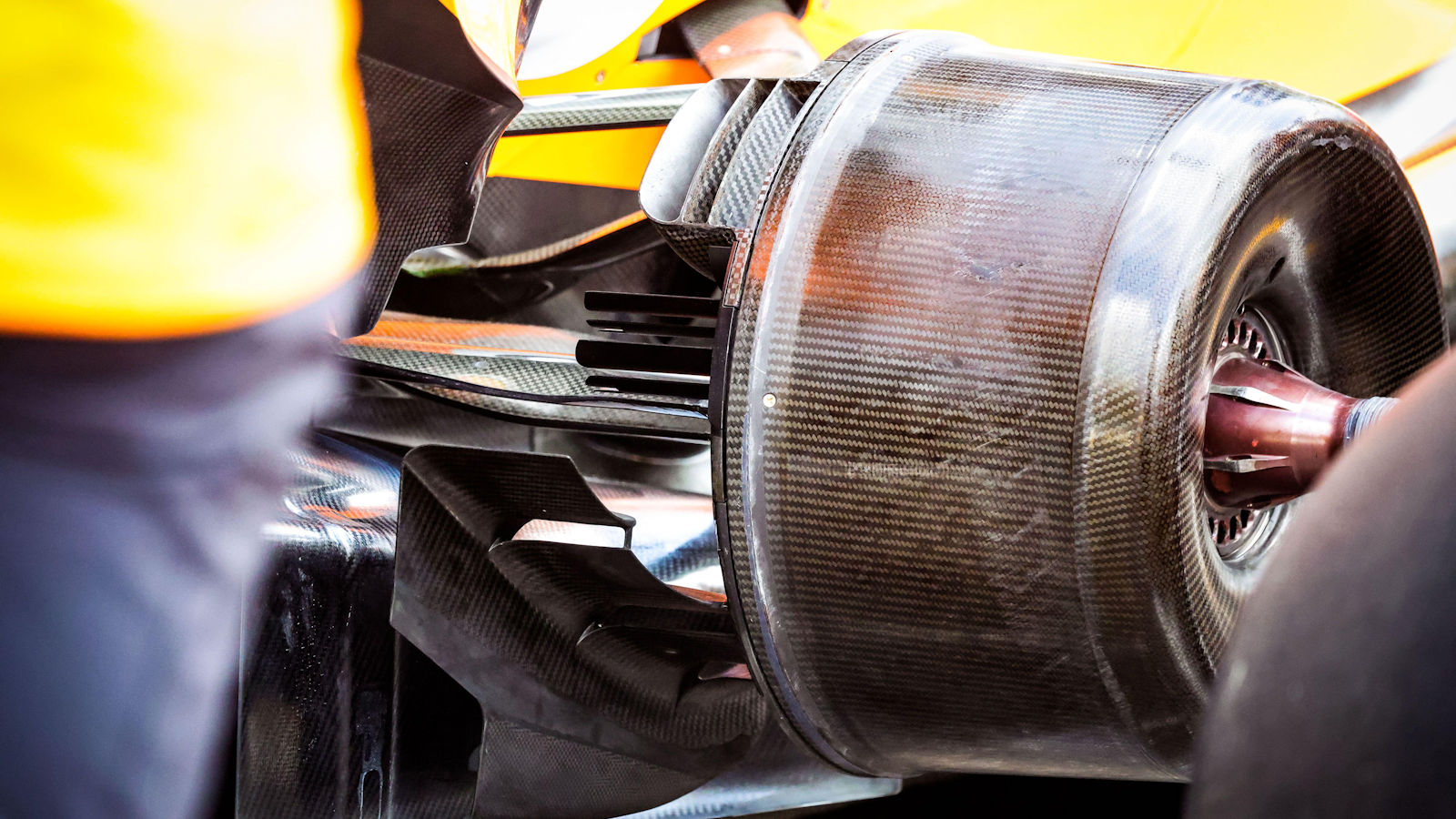
Another angle of the rear corner of the McLaren MCL39, this time revealing more of the brake duct’s upper winglet stack and outlet.

